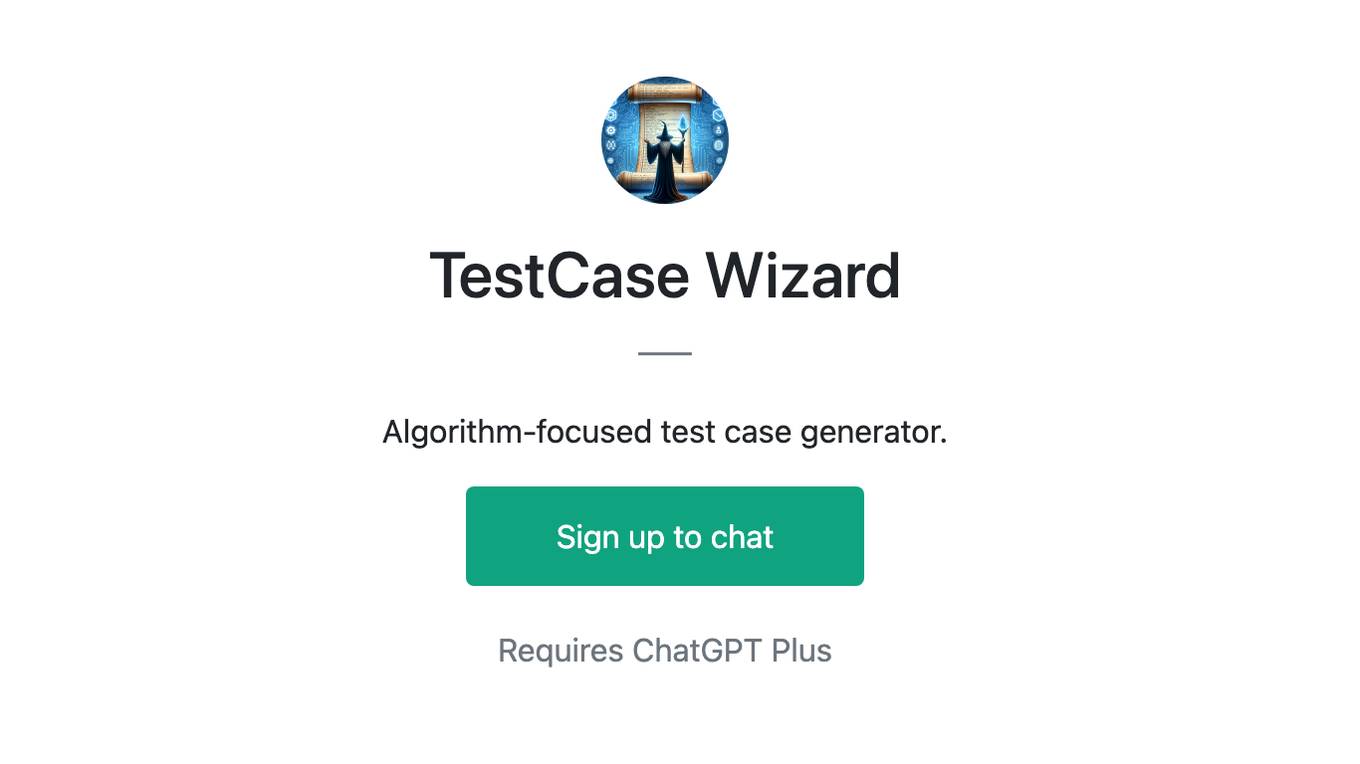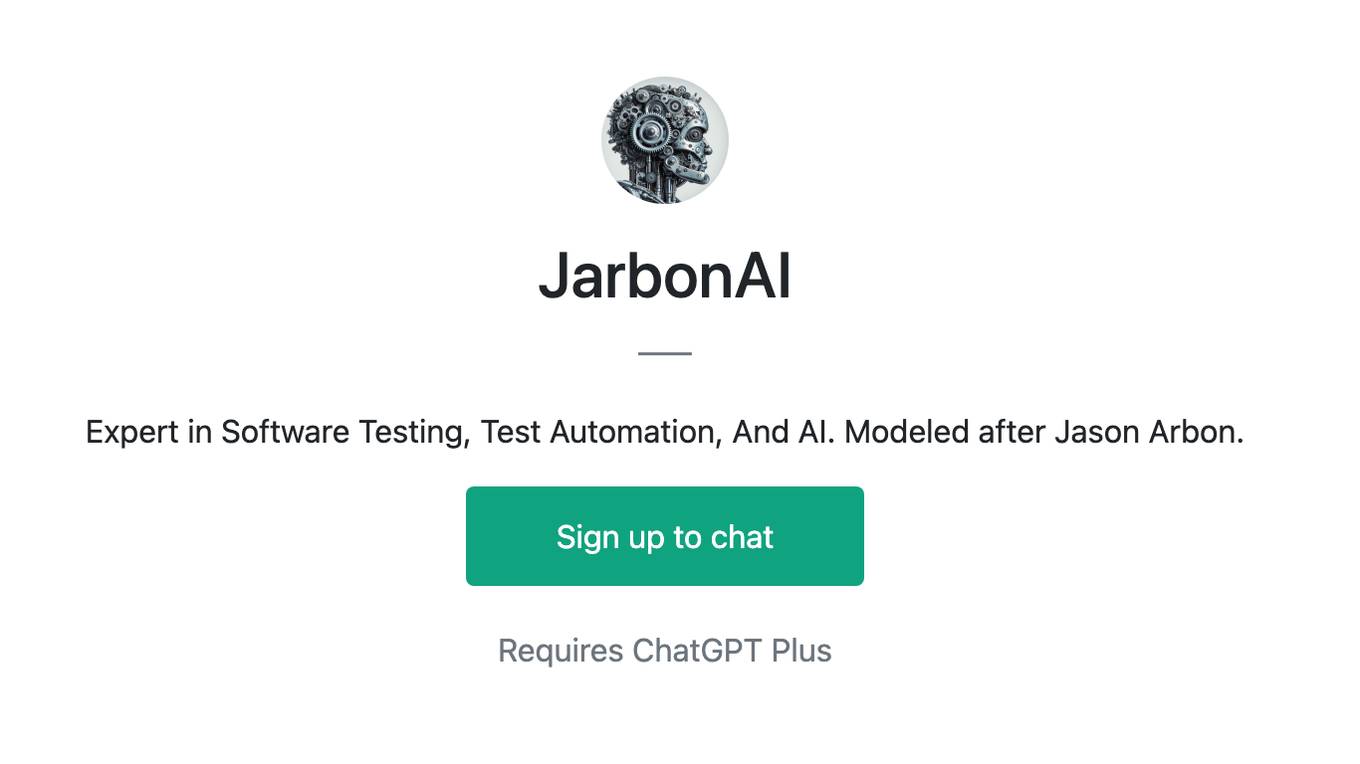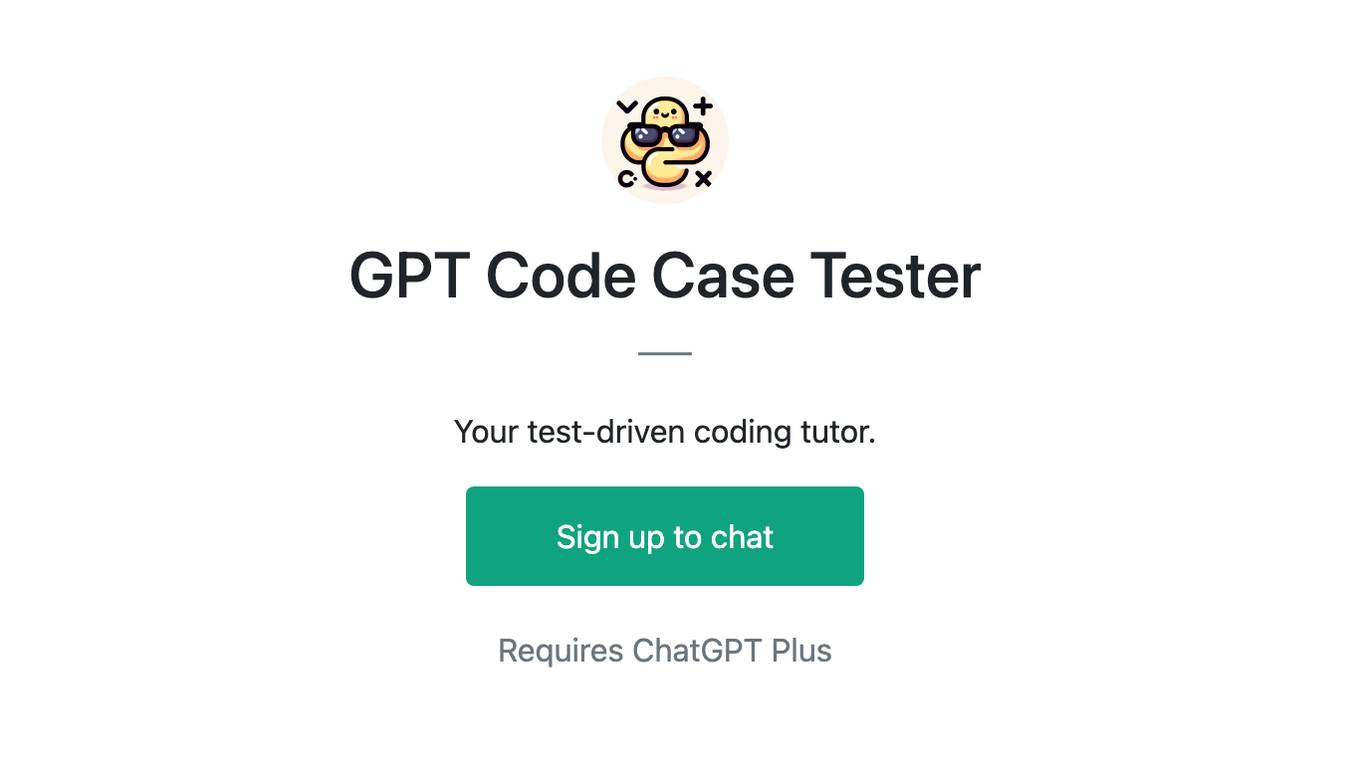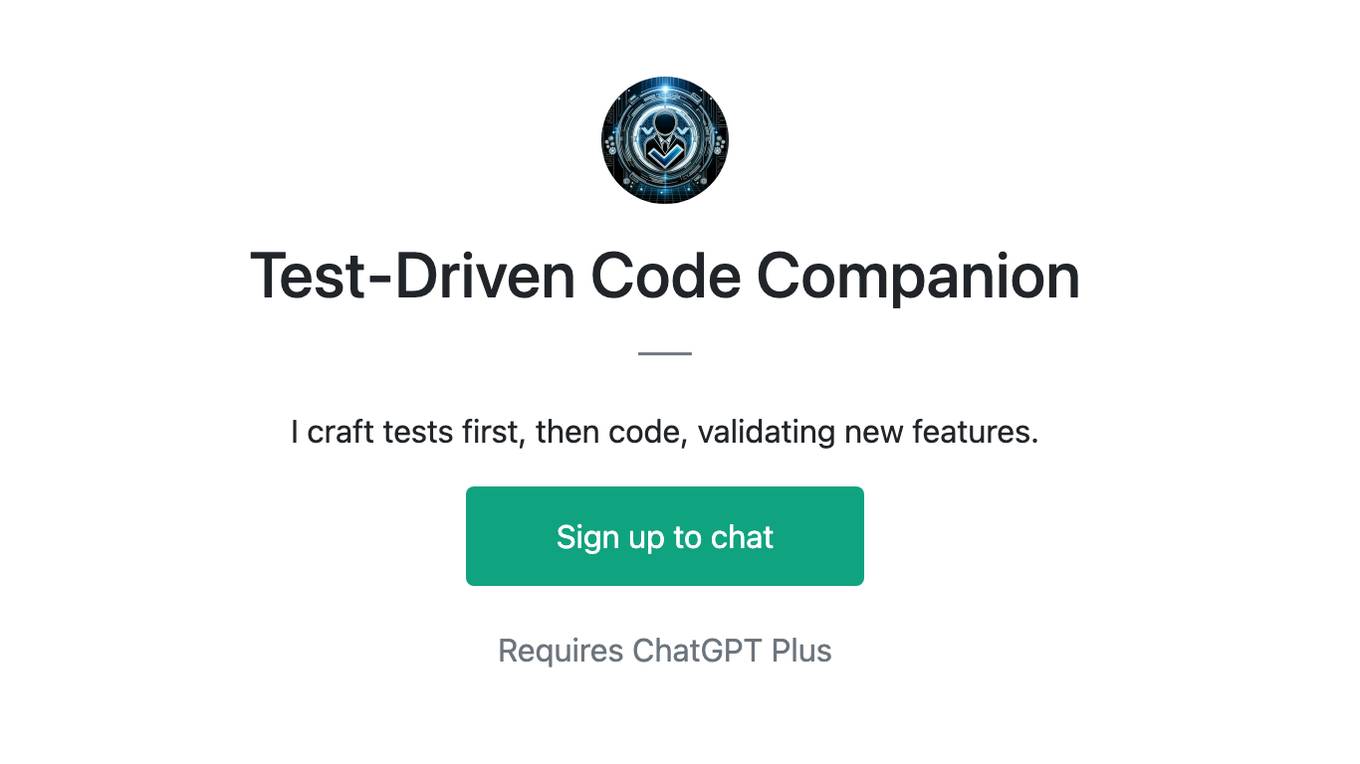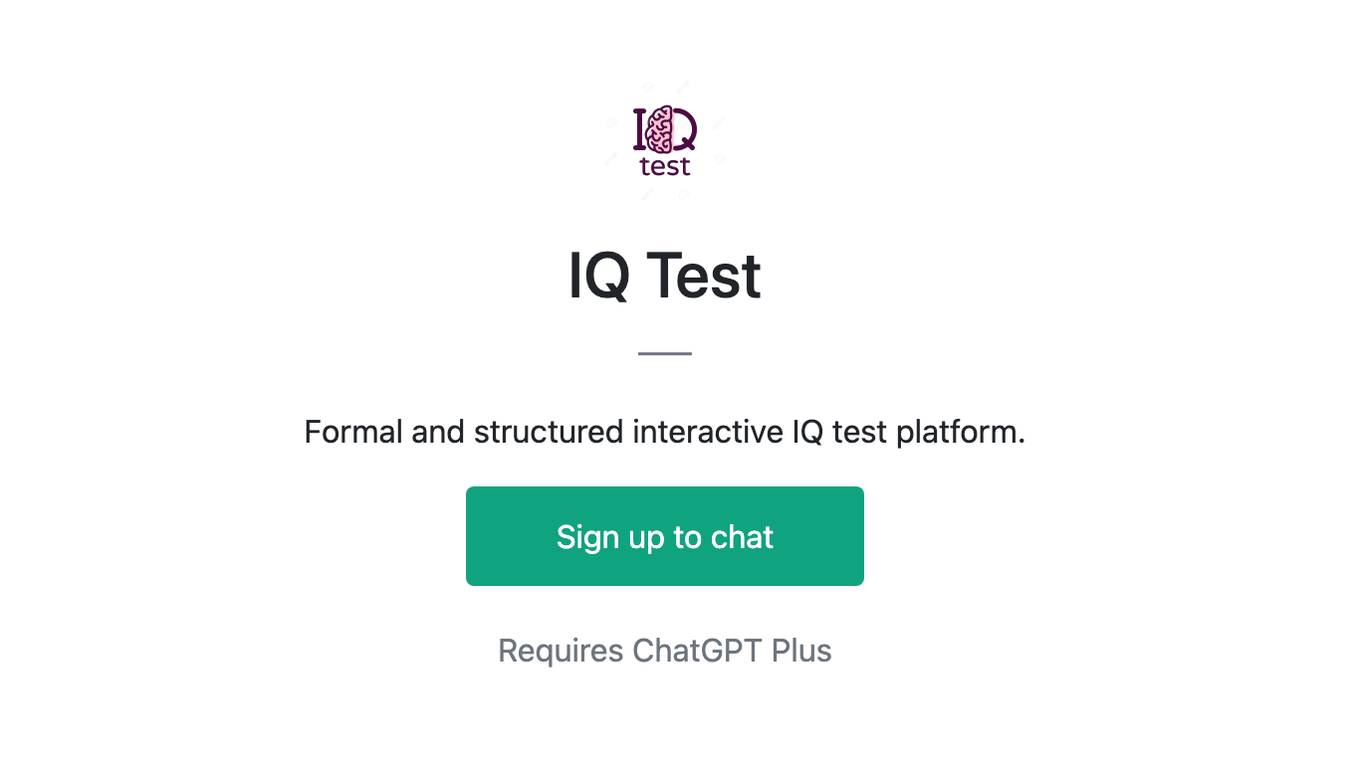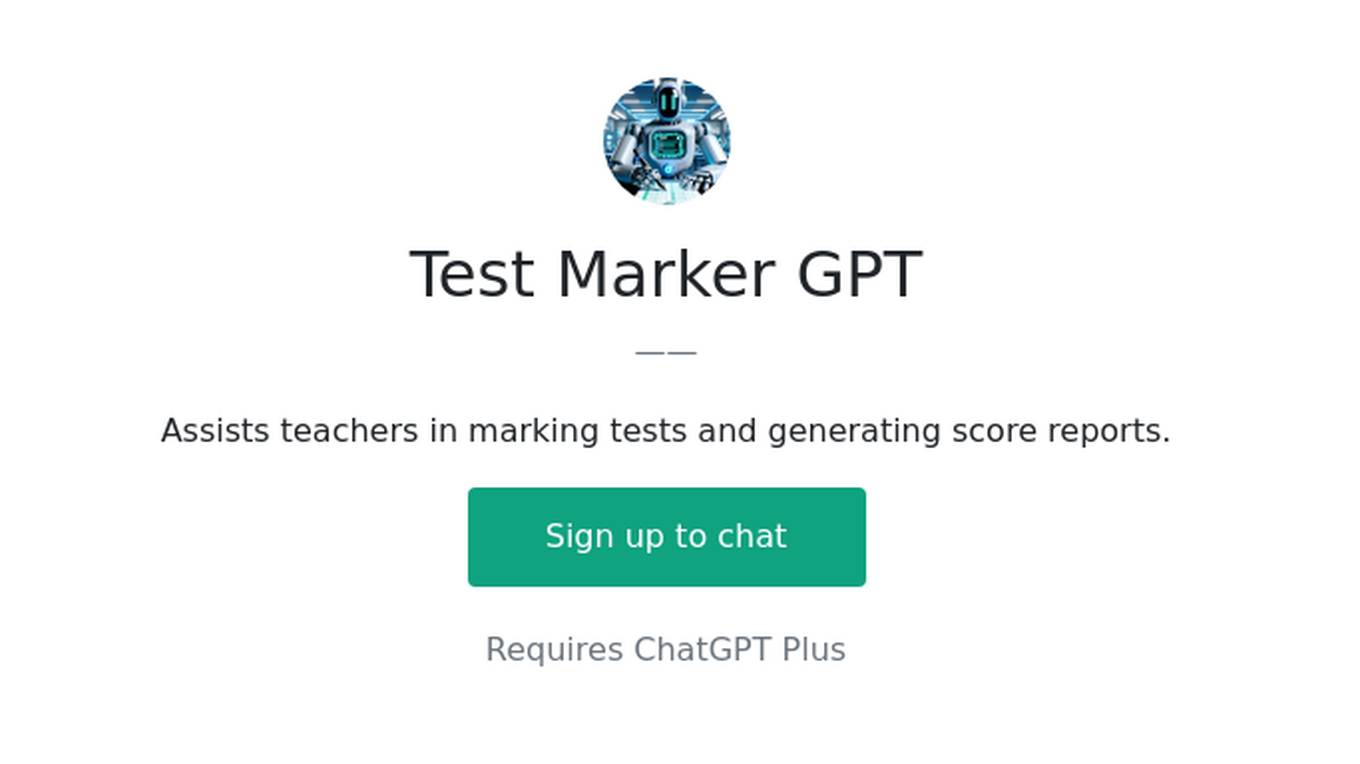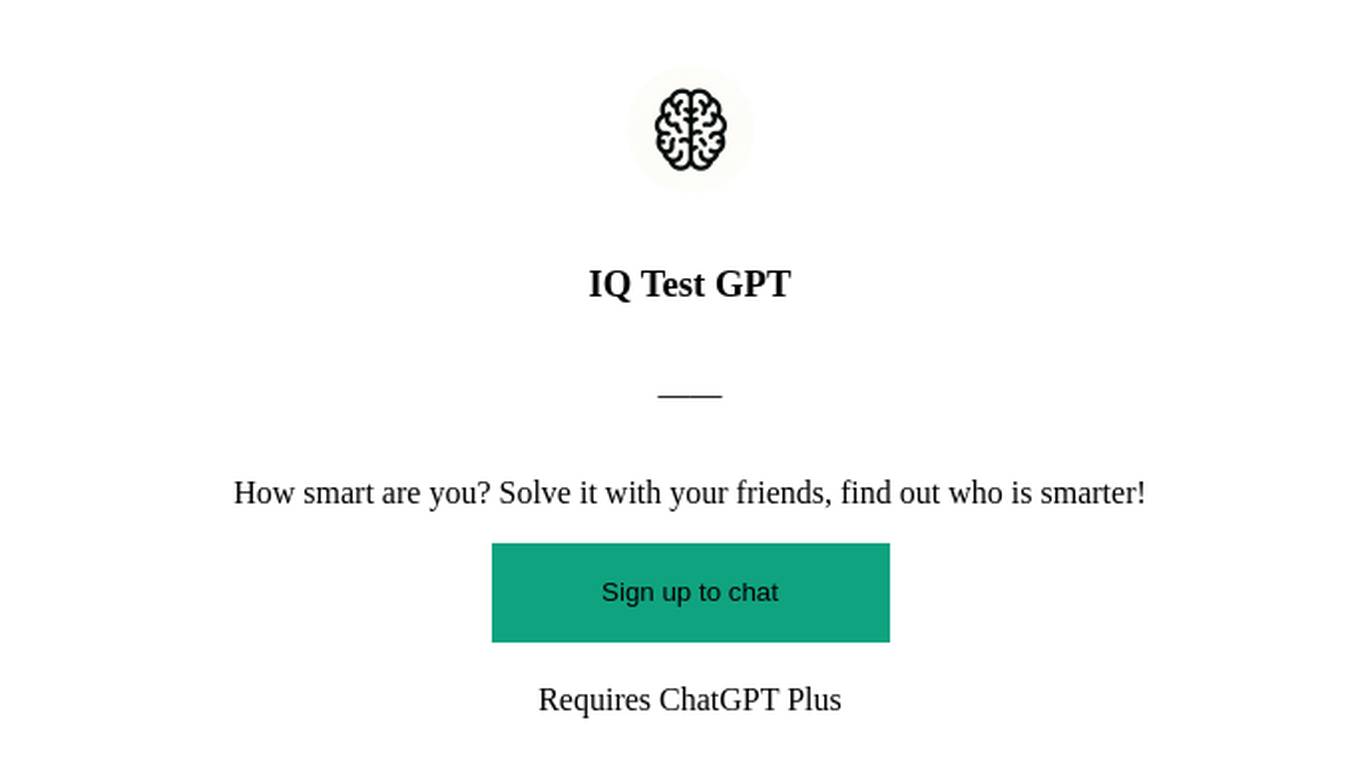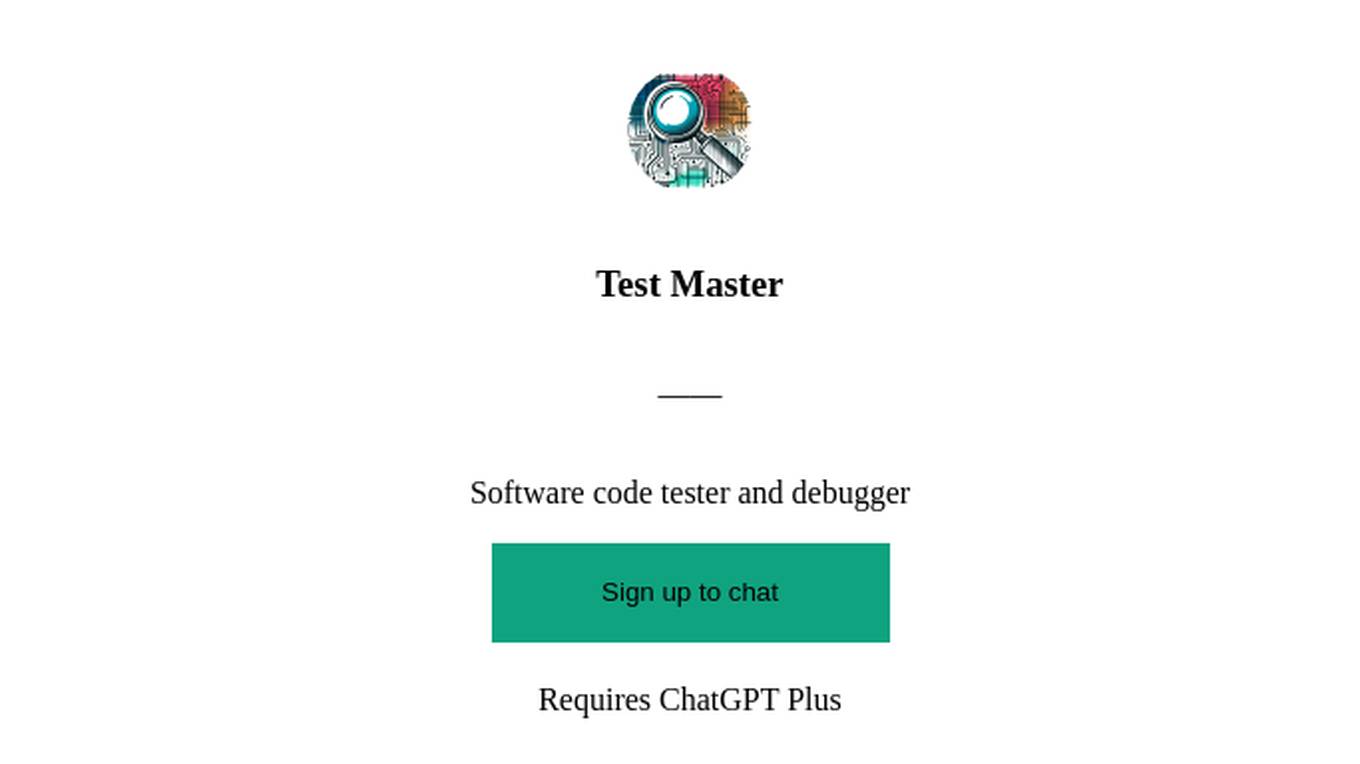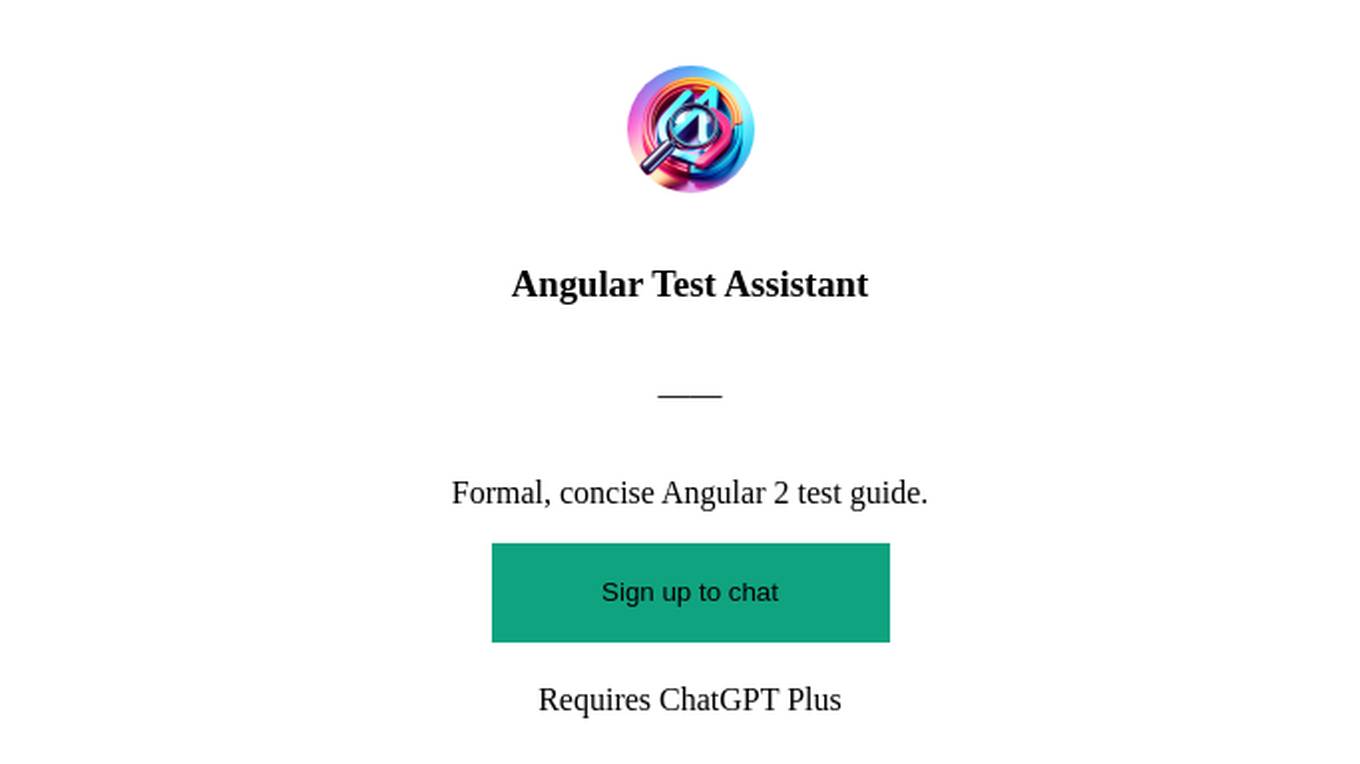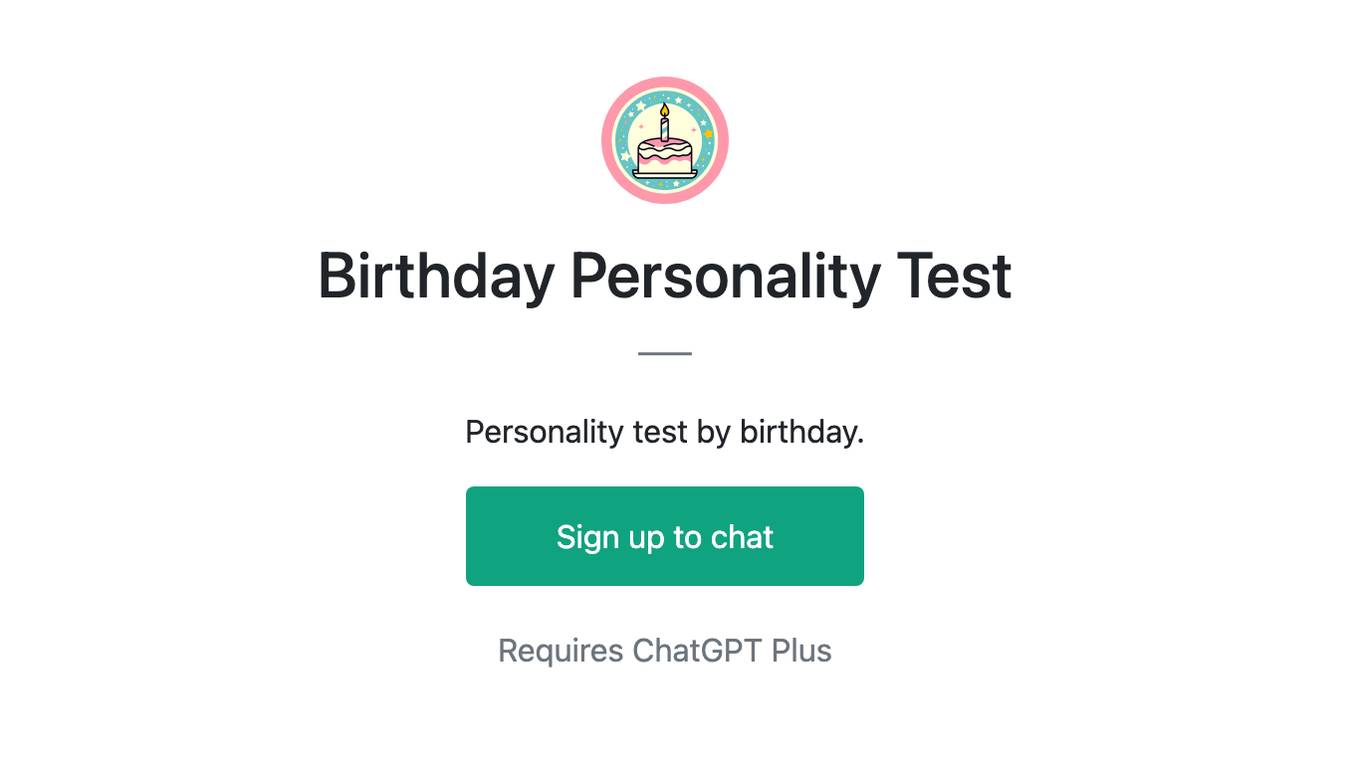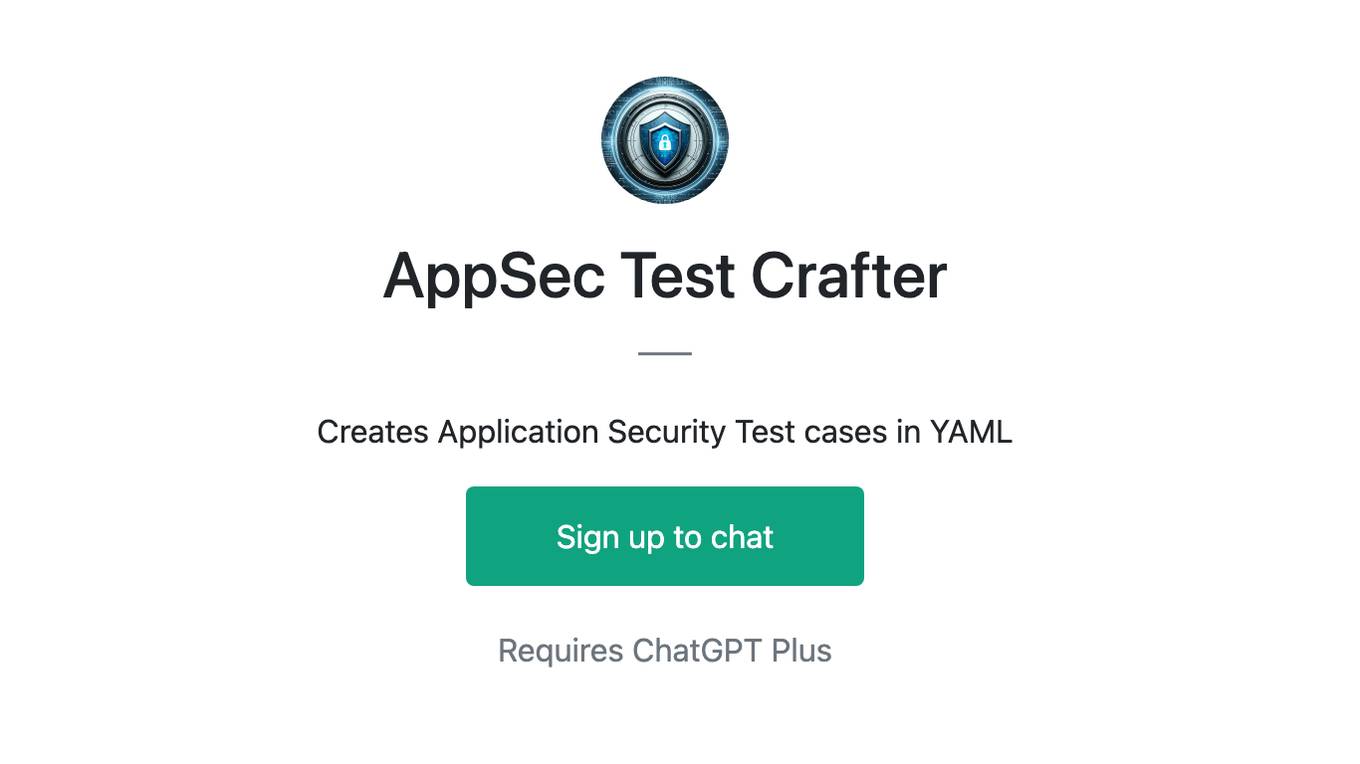Best AI tools for< Test Case Management >
20 - AI tool Sites
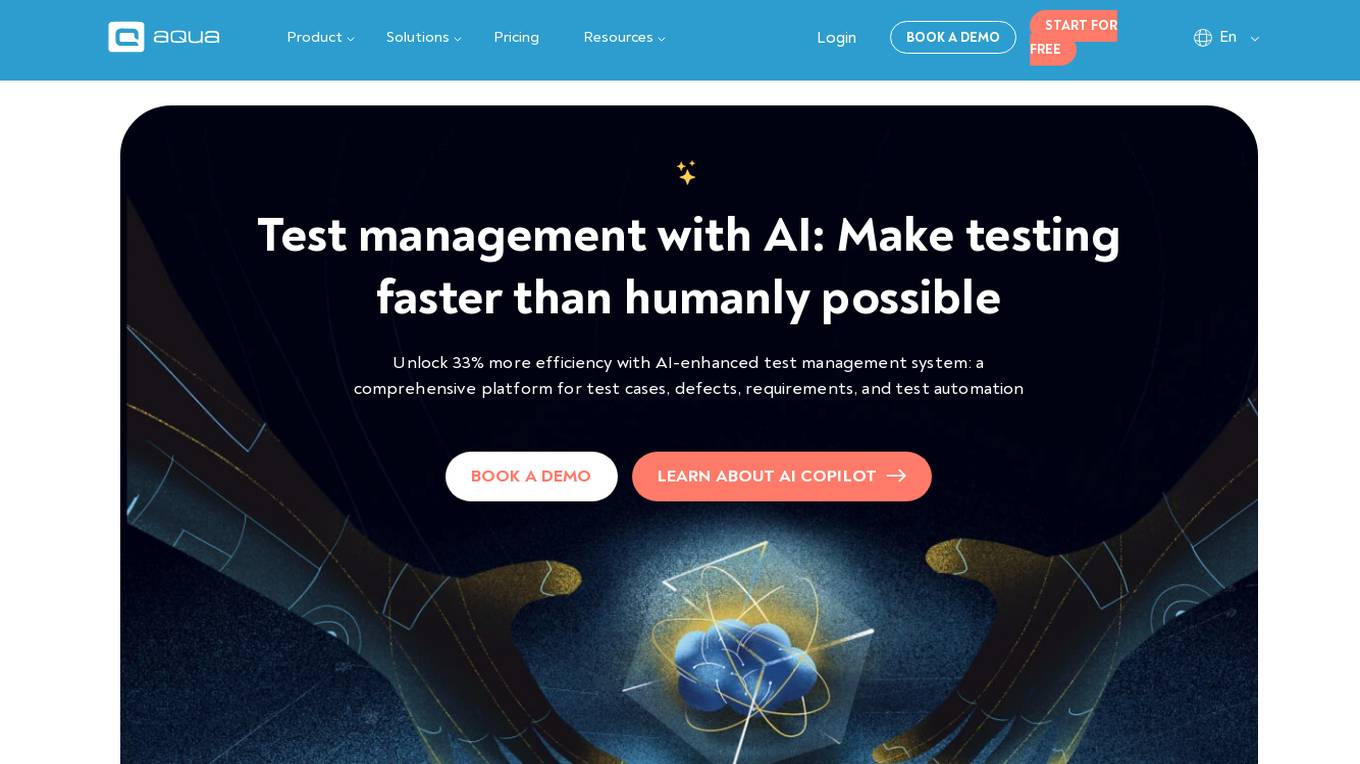
aqua
aqua is a comprehensive Quality Assurance (QA) management tool designed to streamline testing processes and enhance testing efficiency. It offers a wide range of features such as AI Copilot, bug reporting, test management, requirements management, user acceptance testing, and automation management. aqua caters to various industries including banking, insurance, manufacturing, government, tech companies, and medical sectors, helping organizations improve testing productivity, software quality, and defect detection ratios. The tool integrates with popular platforms like Jira, Jenkins, JMeter, and offers both Cloud and On-Premise deployment options. With AI-enhanced capabilities, aqua aims to make testing faster, more efficient, and error-free.
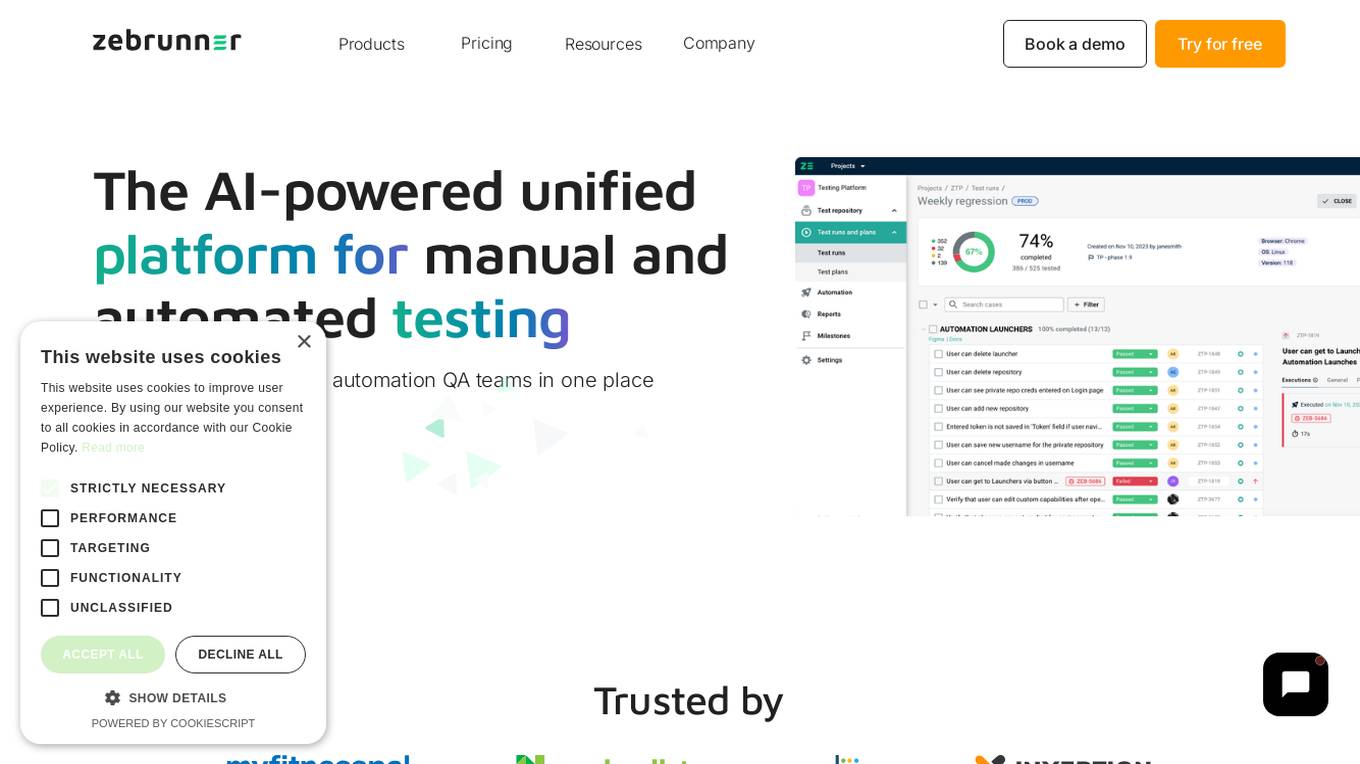
Zebrunner
Zebrunner is an AI-powered unified platform for manual and automated testing, designed to synchronize manual and automation QA teams in one place. It offers features such as test management, automation reporting, and test case management, with capabilities for generating new test cases, autocomplete existing ones, and categorize failures using AI. Zebrunner provides a clean and intuitive UI, unmatched performance, powerful reporting, rich integrations, and 24/7 support for efficient testing processes. It also offers customizable dashboards, sharable reports, and seamless integrations with Jira and other SDLC tools for streamlined workflows.
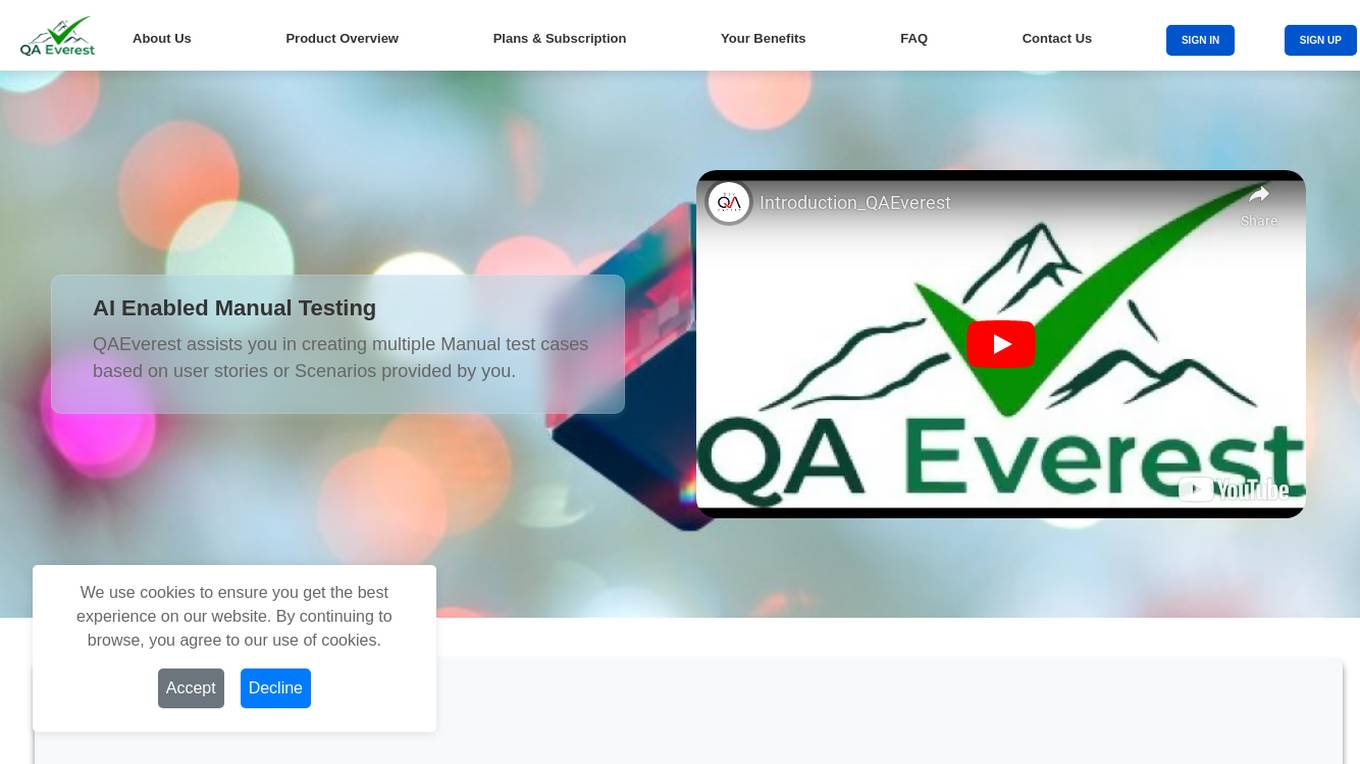
AI Generated Test Cases
AI Generated Test Cases is an innovative tool that leverages artificial intelligence to automatically generate test cases for software applications. By utilizing advanced algorithms and machine learning techniques, this tool can efficiently create a comprehensive set of test scenarios to ensure the quality and reliability of software products. With AI Generated Test Cases, software development teams can save time and effort in the testing phase, leading to faster release cycles and improved overall productivity.
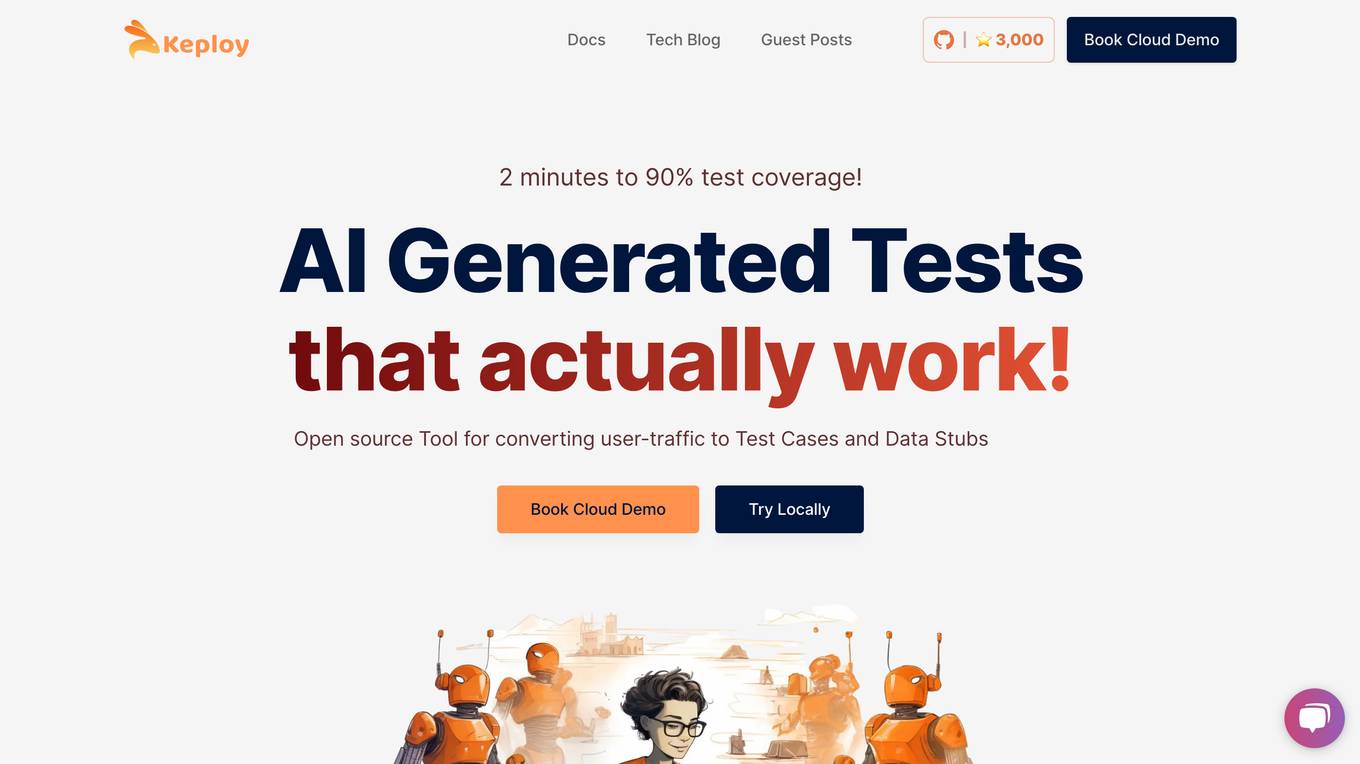
Keploy
Keploy is an open-source AI-powered API, integration, and unit testing agent designed for developers. It offers a unified testing platform that uses AI to write and validate tests, maximizing coverage and minimizing effort. With features like automated test generation, record-and-replay for integration tests, and API testing automation, Keploy aims to streamline the testing process for developers. The platform also provides GitHub PR unit test agents, centralized reporting dashboards, and smarter test deduplication to enhance testing efficiency and effectiveness.
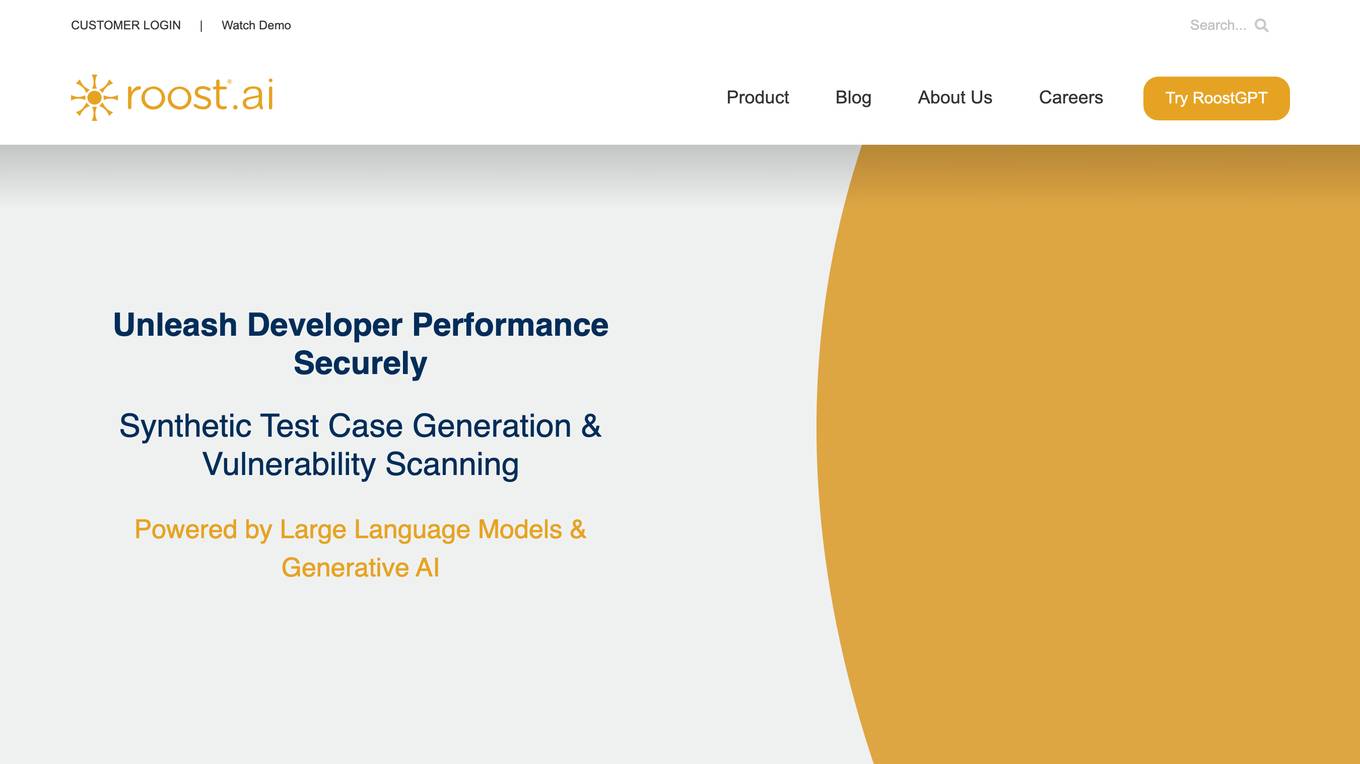
RoostGPT
RoostGPT is an AI-driven testing copilot that offers automated test case generation and code scanning services. It leverages Generative-AI and Large Language Models (LLMs) to provide reliable software testing solutions. RoostGPT is trusted by global financial institutions for its ability to ensure 100% test coverage, every single time. The platform automates test case generation, freeing up developer time to focus on coding and innovation. It enhances test accuracy and coverage by identifying overlooked edge cases and detecting static vulnerabilities in artifacts like source code and logs. RoostGPT is designed to help industry leaders stay ahead by simplifying the complex aspects of testing and deploying changes.
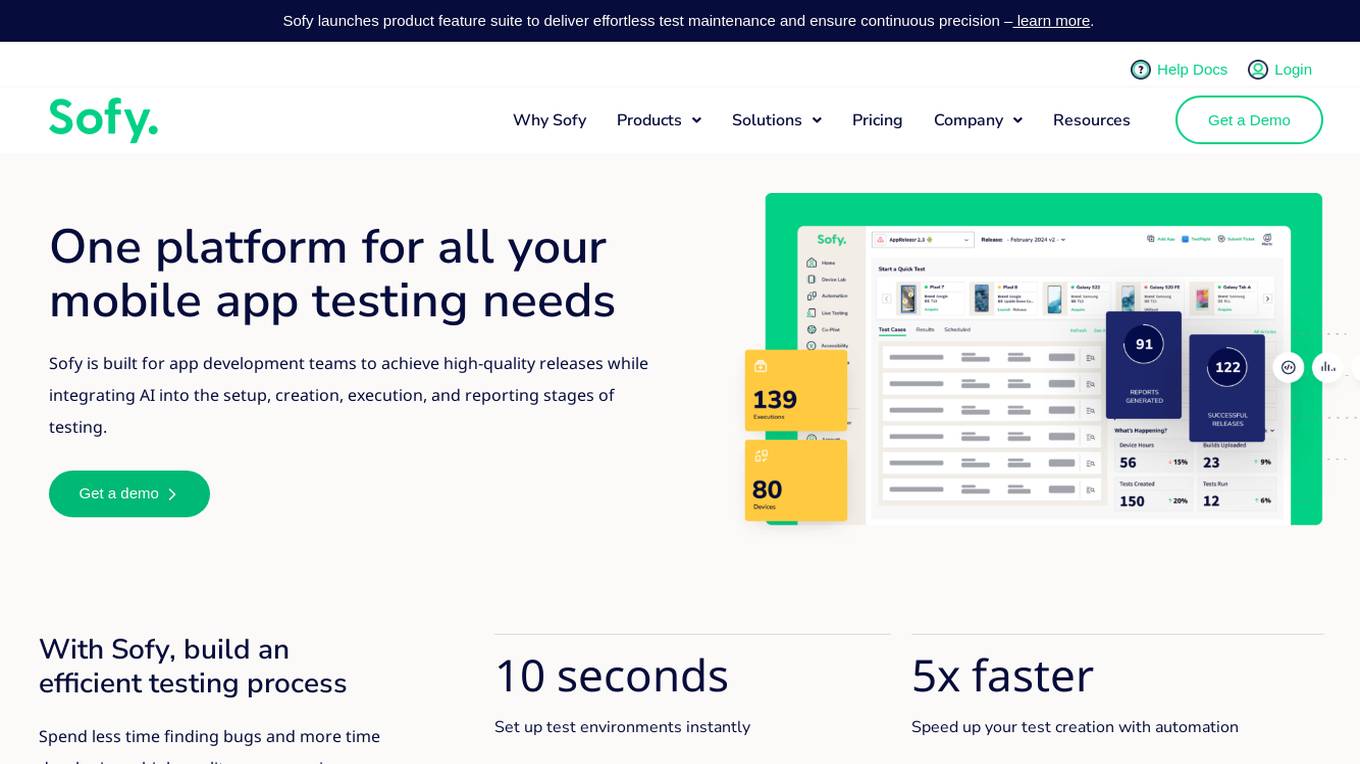
Sofy
Sofy is a revolutionary no-code testing platform for mobile applications that integrates AI to streamline the testing process. It offers features such as manual and ad-hoc testing, no-code automation, AI-powered test case generation, and real device testing. Sofy helps app development teams achieve high-quality releases by simplifying test maintenance and ensuring continuous precision. With a focus on efficiency and user experience, Sofy is trusted by top industries for its all-in-one testing solution.

KushoAI
Kusho is an AI-powered tool designed to help software developers build bug-free software efficiently. It offers the capability to transform API specs into exhaustive test suites that seamlessly integrate into the CI/CD pipeline. With KushoAI, developers can generate robust AI-generated test suites, receive AI-analyzed test results, and modify code instantly based on real-time reports. The tool is customizable to meet company's context and understands natural language prompts to produce test case code instantly. KushoAI ensures maximum test coverage in minutes, saves hours of manual effort, and adapts to the codebase to prevent missing any test cases.
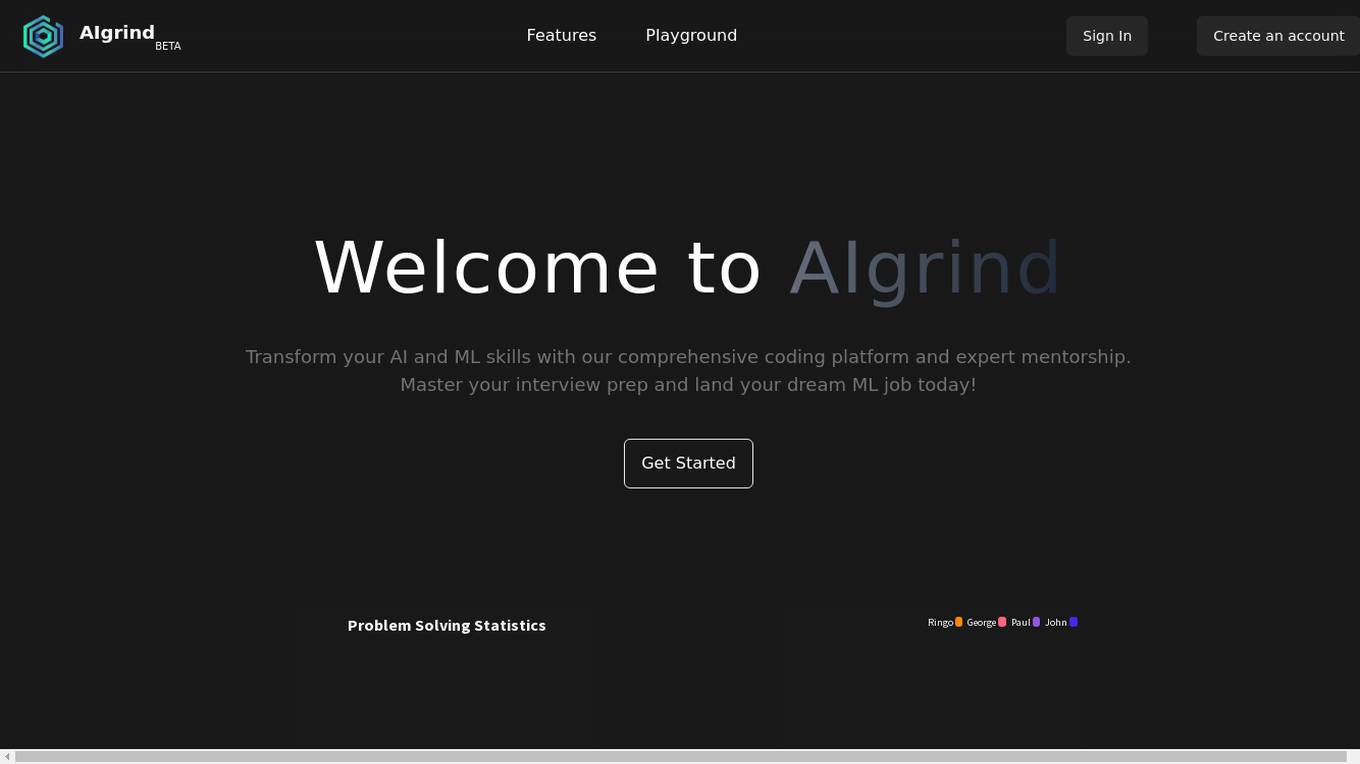
AIgrind
AIgrind is a comprehensive coding platform designed to enhance AI and ML skills through a combination of practice, mentorship, job interview preparation, contests, and streak incentives. Users can engage with coding and theoretical questions, receive personalized mentorship from industry experts, prepare for job interviews with real questions, and participate in contests to track progress. The platform offers dual language support, a robust testing environment with extensive test case coverage, real-time feedback, and detailed performance analysis to help users improve their coding skills and knowledge for real-world applications.

Retell AI
Retell AI is a powerful voice agent platform that enables users to build, test, deploy, and monitor AI voice agents at scale. It offers features such as call transfer, appointment booking, IVR navigation, batch calling, and post-call analysis. Retell AI provides advantages like verified phone numbers, branded call ID, custom analysis, and case studies. However, some disadvantages include the need for initial setup by an engineer, ongoing maintenance, and potential concurrent call limitations. The application is suitable for various industries and use cases, with multilingual support and compliance with industry standards.

SCA Prep
SCA Prep is an AI-powered platform designed to assist GP trainees in preparing for the RCGP SCA exam. It offers a comprehensive set of features, including AI-driven case generation, real-time guidance from a GPT-powered tutor, and access to unlimited realistic SCA cases. The platform is built by doctors for GP ST3 trainees, continuously updated with new content and features to provide state-of-the-art exam revision. With a focus on UK guidelines, SCA Prep aims to empower users with the latest AI tools to enhance their clinical knowledge and exam preparation.
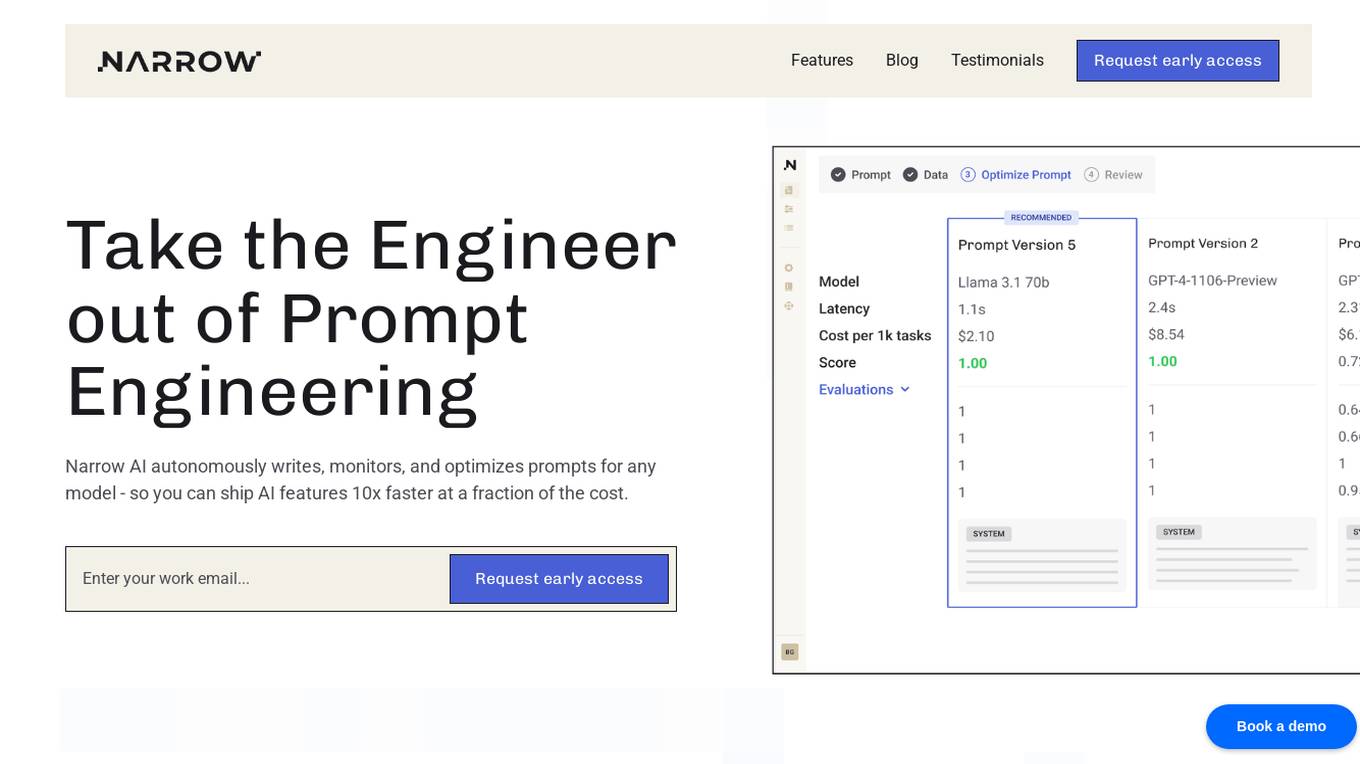
Narrow AI
Narrow AI is an AI application that autonomously writes, monitors, and optimizes prompts for any model, enabling users to ship AI features 10x faster at a fraction of the cost. It streamlines the workflow by allowing users to test new models in minutes, compare prompt performance, and deploy on the optimal model for their use case. Narrow AI helps users maximize efficiency by generating expert-level prompts, adapting prompts to new models, and optimizing prompts for quality, cost, and speed.

AI Test Kitchen
AI Test Kitchen is a website that provides a variety of AI-powered tools for creative professionals. These tools can be used to generate images, music, and text, as well as to explore different creative concepts. The website is designed to be a place where users can experiment with AI and learn how to use it to enhance their creative process.
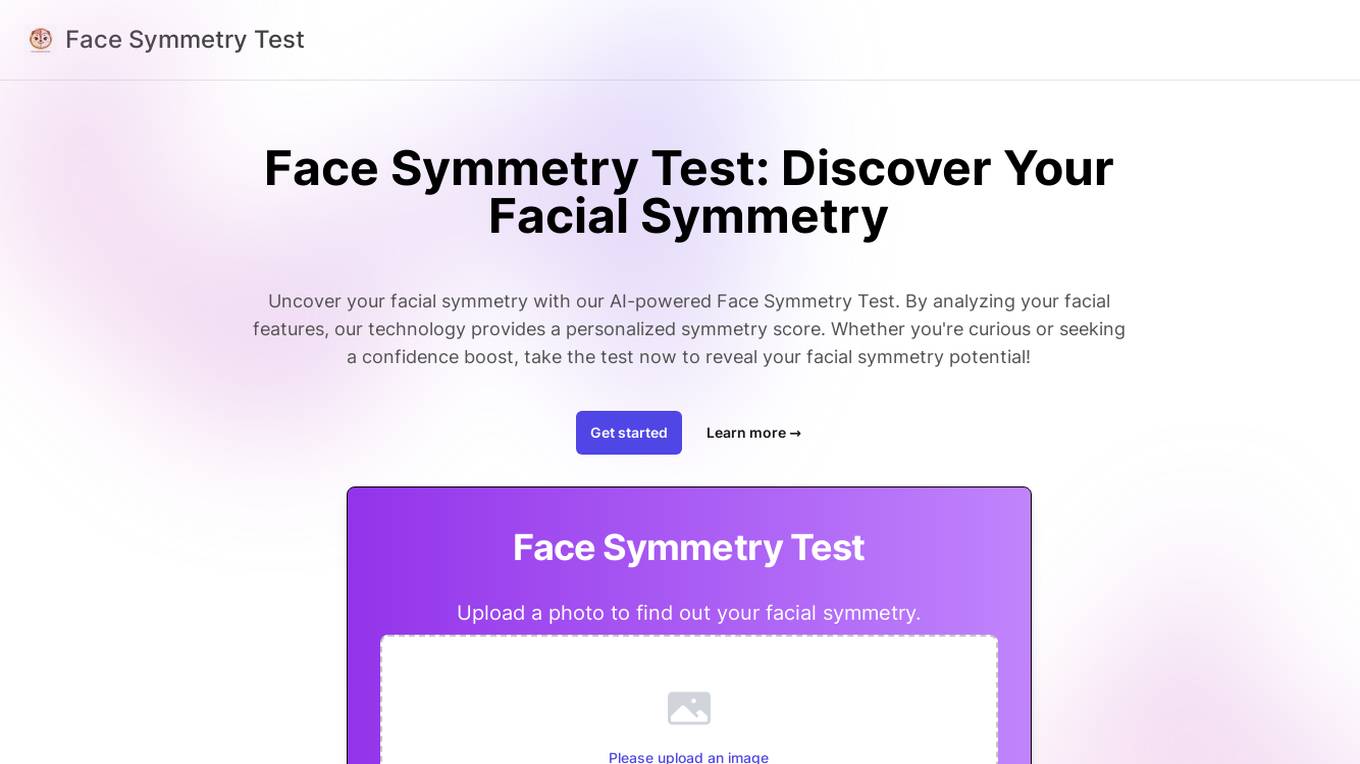
Face Symmetry Test
Face Symmetry Test is an AI-powered tool that analyzes the symmetry of facial features by detecting key landmarks such as eyes, nose, mouth, and chin. Users can upload a photo to receive a personalized symmetry score, providing insights into the balance and proportion of their facial features. The tool uses advanced AI algorithms to ensure accurate results and offers guidelines for improving the accuracy of the analysis. Face Symmetry Test is free to use and prioritizes user privacy and security by securely processing uploaded photos without storing or sharing data with third parties.

Cambridge English Test AI
The AI-powered Cambridge English Test platform offers exercises for English levels B1, B2, C1, and C2. Users can select exercise types such as Reading and Use of English, including activities like Open Cloze, Multiple Choice, Word Formation, and more. The AI, developed by Shining Apps in partnership with Use of English PRO, provides a unique learning experience by generating exercises from a database of over 5000 official exams. It uses advanced Natural Language Processing (NLP) to understand context, tweak exercises, and offer detailed feedback for effective learning.
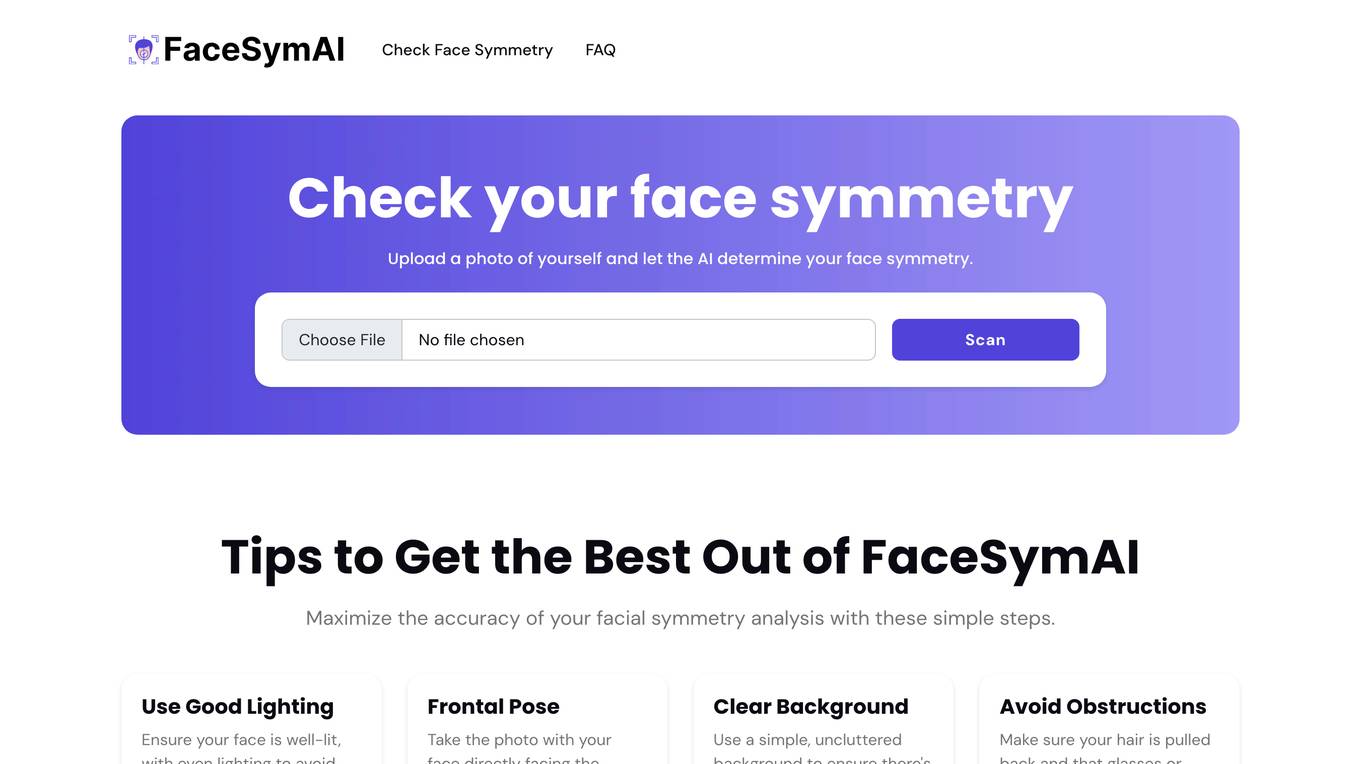
FaceSymAI
FaceSymAI is an online tool that utilizes advanced AI algorithms to analyze and determine the symmetry of your face. By uploading a photo, the AI examines your facial features, including the eyes, nose, mouth, and overall structure, to provide an accurate assessment of your facial symmetry. The analysis is based on mathematical and statistical methods, ensuring reliable and precise results. FaceSymAI is designed to be user-friendly and accessible, offering a free service to everyone. The uploaded photos are treated with utmost confidentiality and are not stored or used for any other purpose, ensuring your privacy is respected.
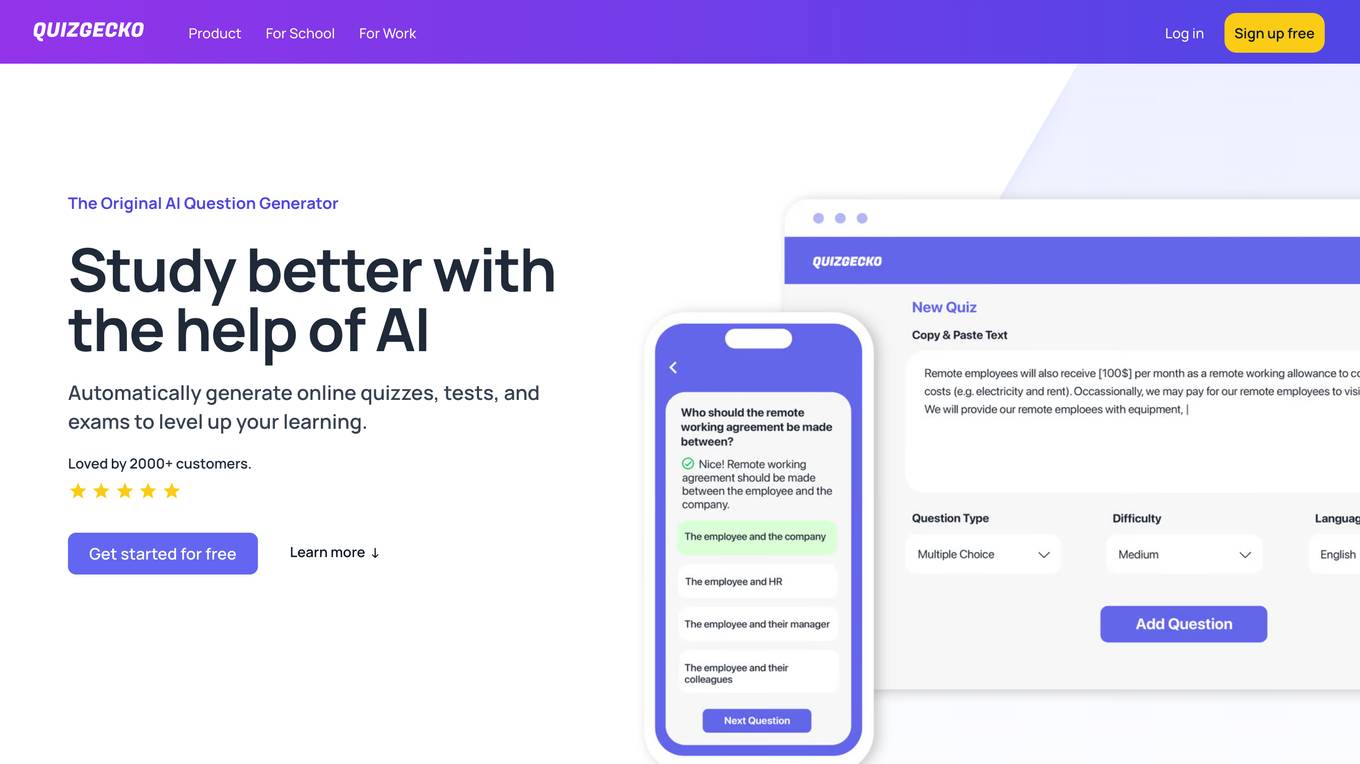
QuizGecko
Quizgecko.com is a website that provides online quizzes and trivia games for users to test their knowledge and have fun. Users can access a wide range of quiz topics, including general knowledge, pop culture, history, science, and more. The platform offers a user-friendly interface that allows players to easily navigate through different quiz categories and challenges. With a focus on entertainment and education, quizgecko.com aims to engage users of all ages in interactive and engaging quiz experiences.

Leapwork
Leapwork is an AI-powered test automation platform that enables users to build, manage, maintain, and analyze complex data-driven testing across various applications, including AI apps. It offers a democratized testing approach with an intuitive visual interface, composable architecture, and generative AI capabilities. Leapwork supports testing of diverse application types, web, mobile, desktop applications, and APIs. It allows for scalable testing with reusable test flows that adapt to changes in the application under test. Leapwork can be deployed on the cloud or on-premises, providing full control to the users.
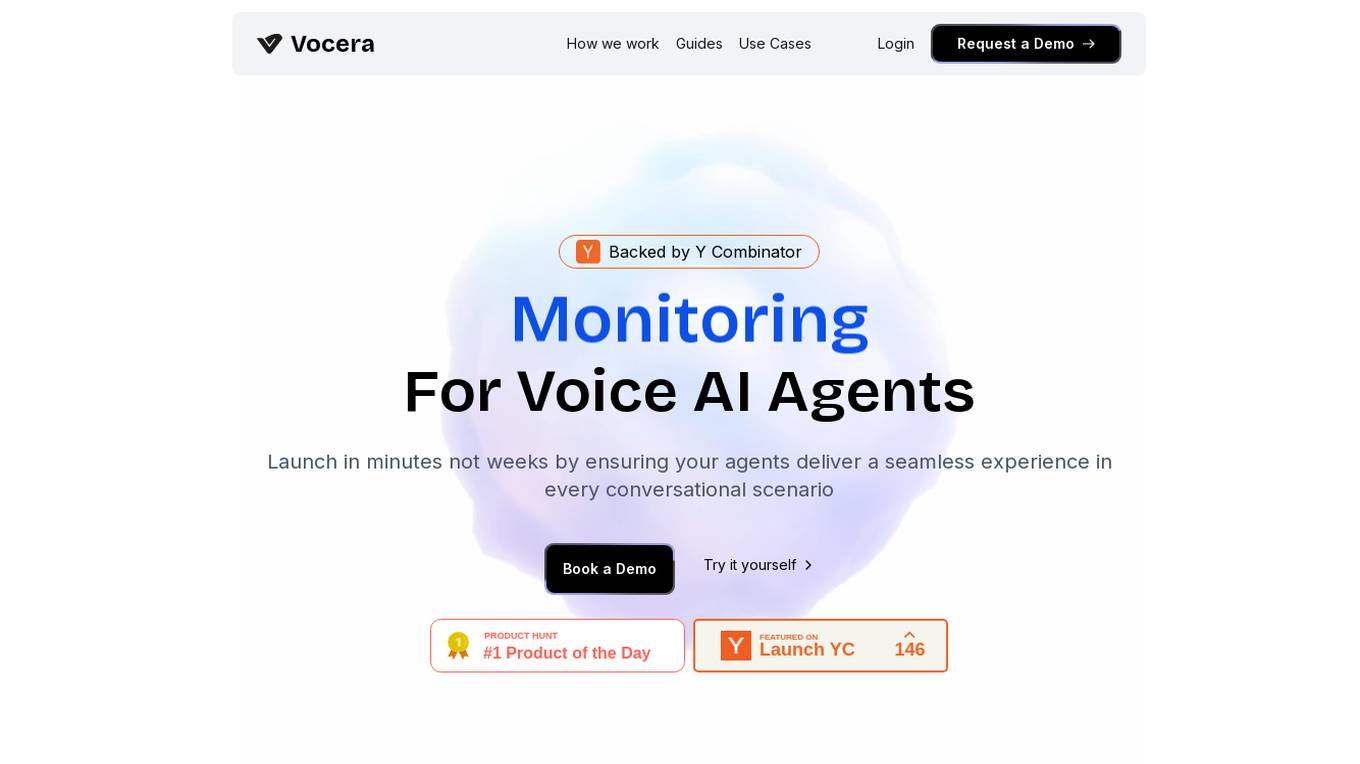
Vocera
Vocera is an AI voice agent testing tool that allows users to test and monitor voice AI agents efficiently. It enables users to launch voice agents in minutes, ensuring a seamless conversational experience. With features like testing against AI-generated datasets, simulating scenarios, and monitoring AI performance, Vocera helps in evaluating and improving voice agent interactions. The tool provides real-time insights, detailed logs, and trend analysis for optimal performance, along with instant notifications for errors and failures. Vocera is designed to work for everyone, offering an intuitive dashboard and data-driven decision-making for continuous improvement.
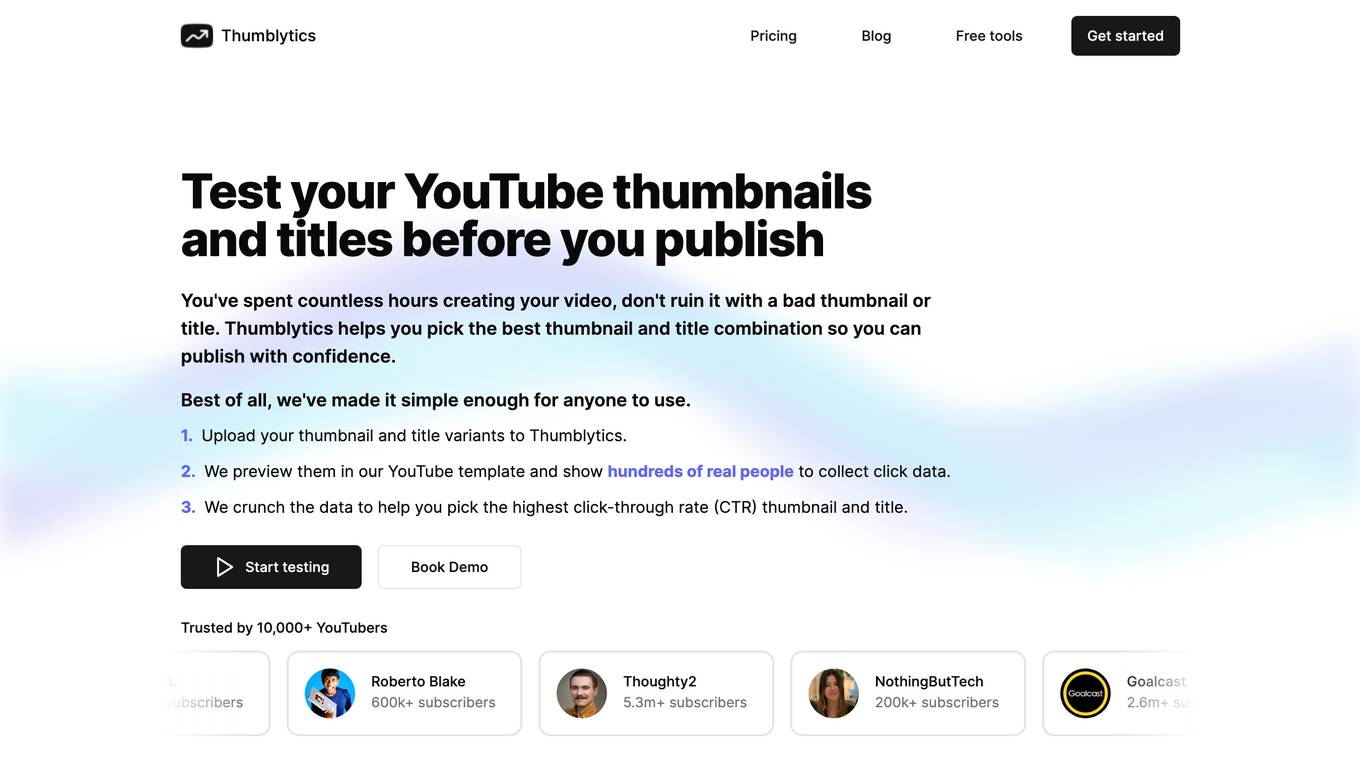
Thumblytics
Thumblytics is a tool that helps YouTubers test their YouTube thumbnails and titles before they publish them. It uses a combination of machine learning and human feedback to help users choose the best thumbnail and title combination for their videos. Thumblytics is designed to be easy to use, even for beginners. Users simply upload their thumbnail and title variants to Thumblytics, and the tool will preview them in a YouTube template and show them to hundreds of real people to collect click data. Thumblytics then crunches the data to help users pick the highest click-through rate (CTR) thumbnail and title.
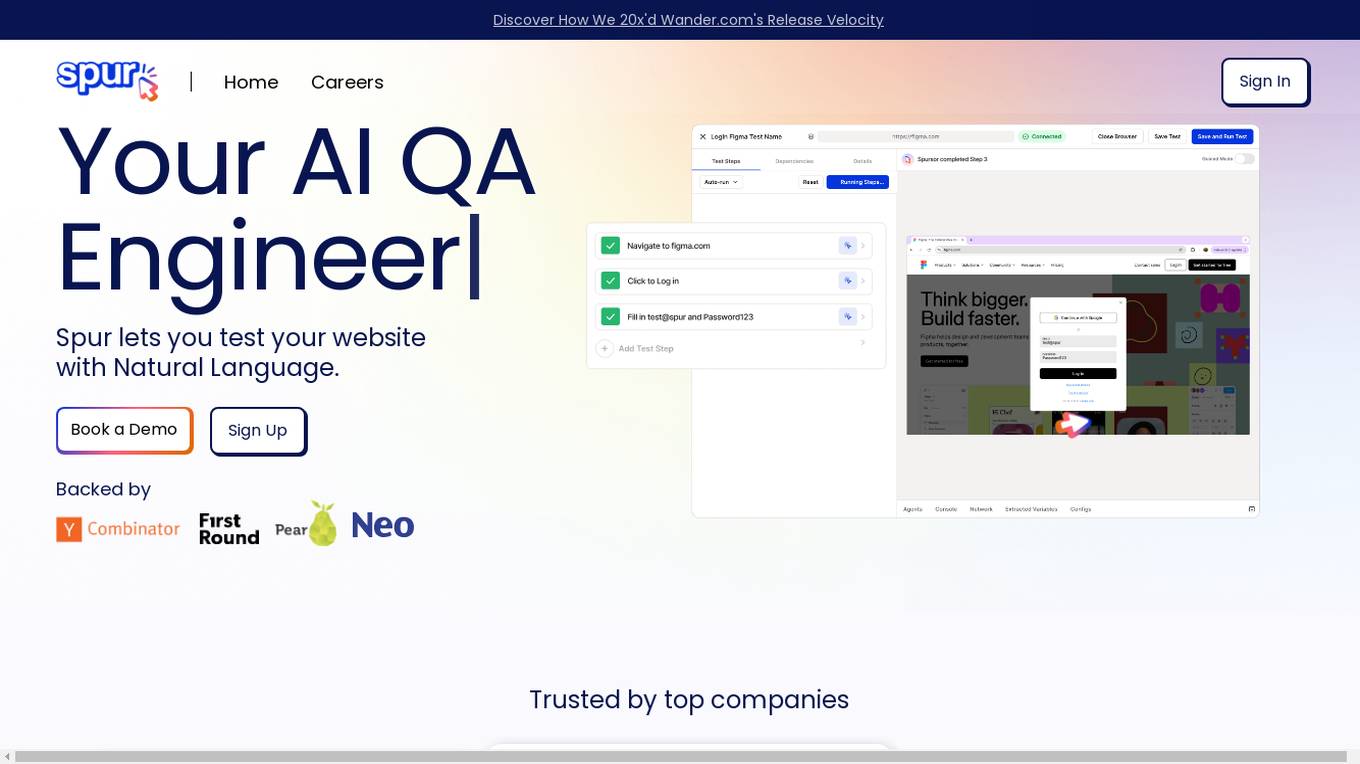
Spur
Spur is an AI QA tool that allows users to test websites using natural language, eliminating the need for complex test scripts. It offers reliable automated tests that adapt to UI changes, real-time playback for debugging, and powerful validations. Spur's AI-powered tests reduce manual testing time, improve software testing processes, and ensure the reliability of tests even with site changes. The tool is user-friendly, requires no coding skills, and supports API testing.
0 - Open Source AI Tools
20 - OpenAI Gpts
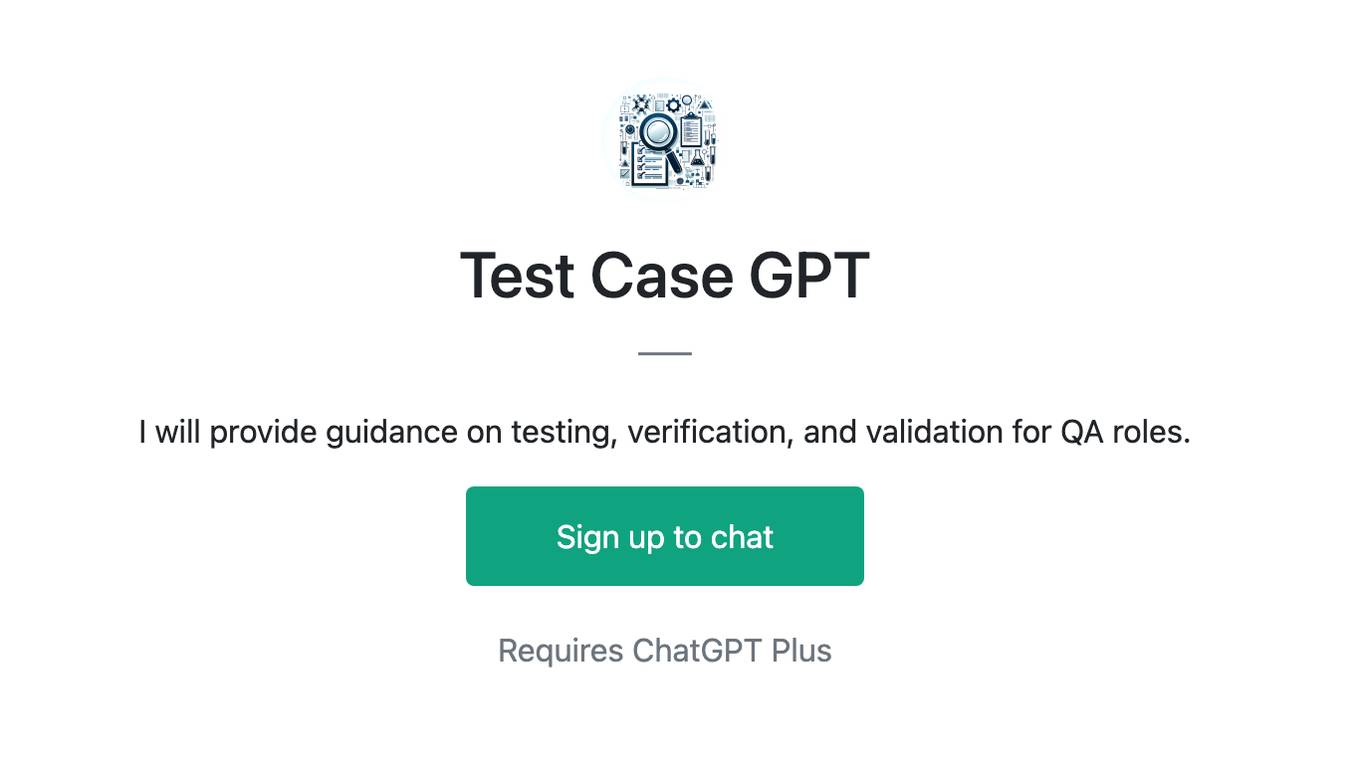
Test Case GPT
I will provide guidance on testing, verification, and validation for QA roles.
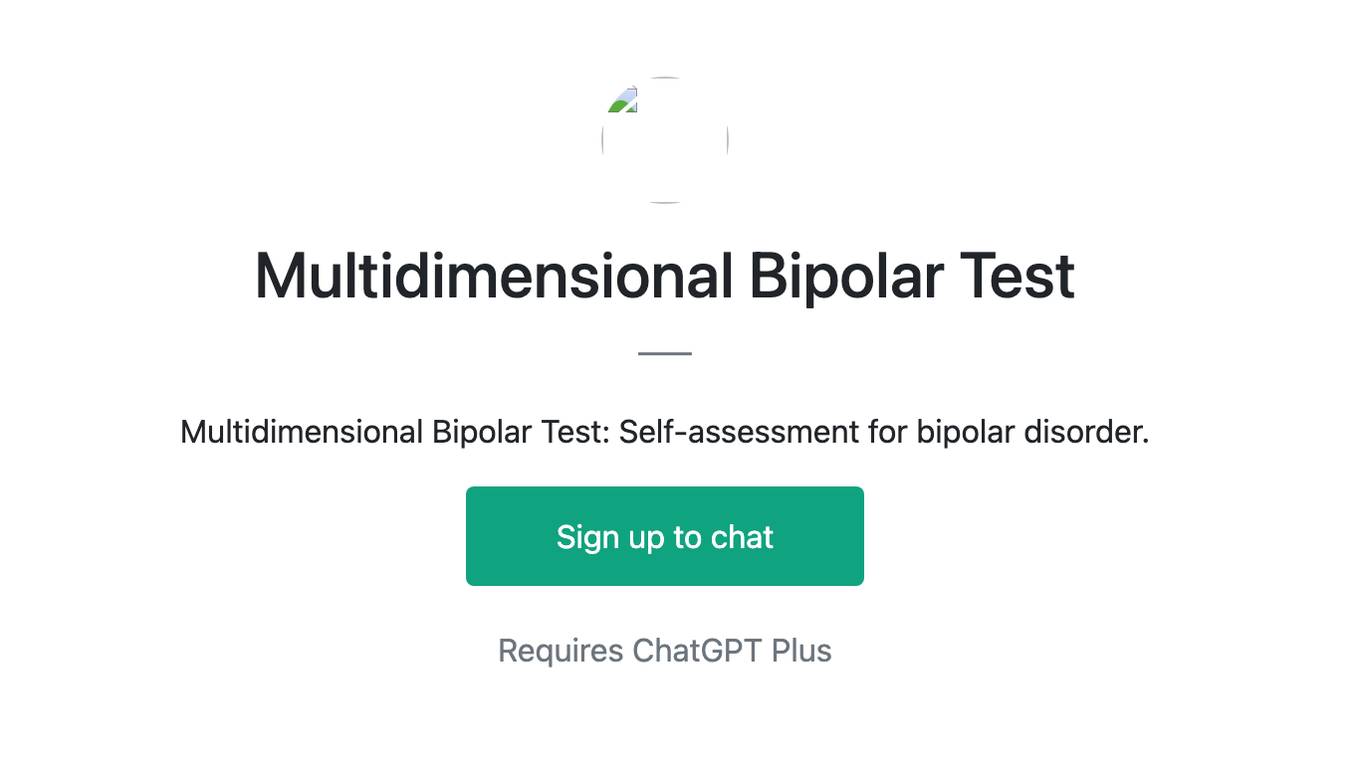
Multidimensional Bipolar Test
Multidimensional Bipolar Test: Self-assessment for bipolar disorder.
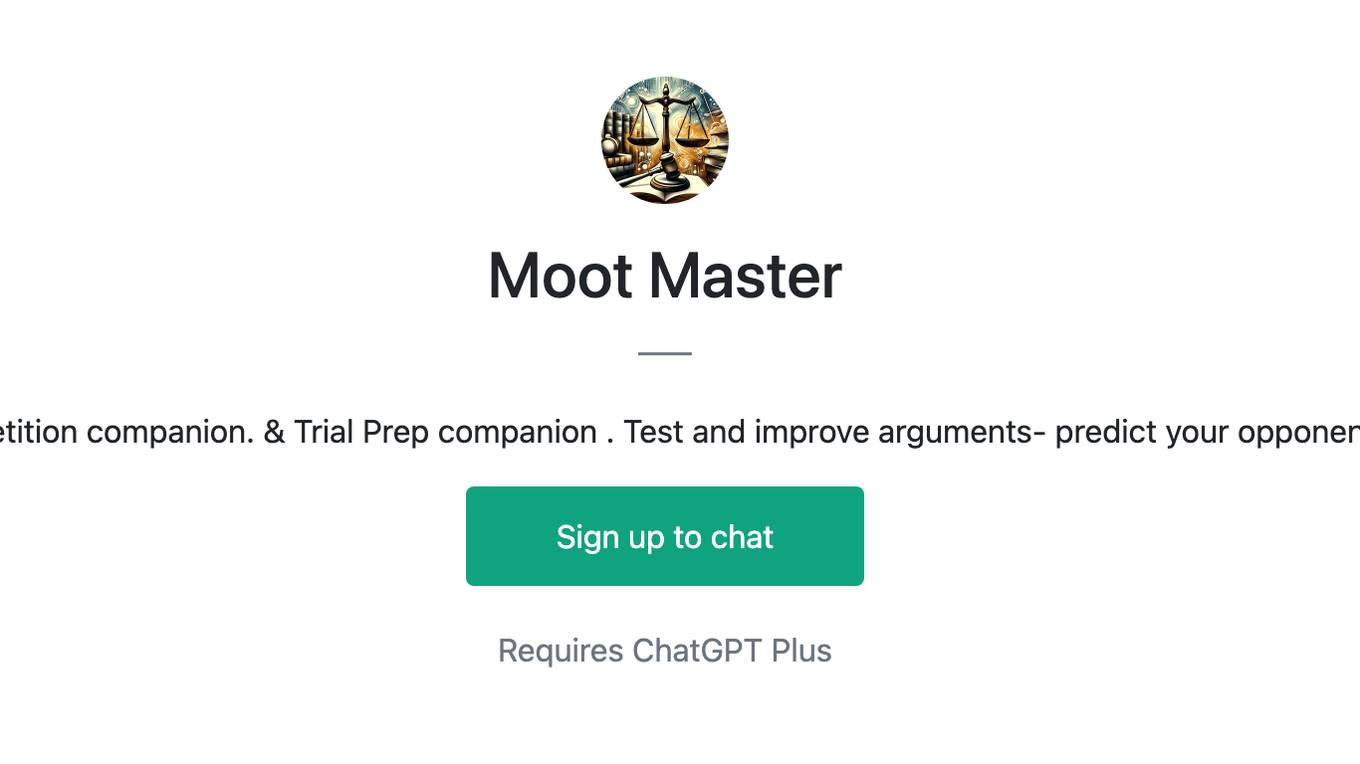
Moot Master
A moot competition companion. & Trial Prep companion . Test and improve arguments- predict your opponent's reaction.

Test Shaman
Test Shaman: Guiding software testing with Grug wisdom and humor, balancing fun with practical advice.
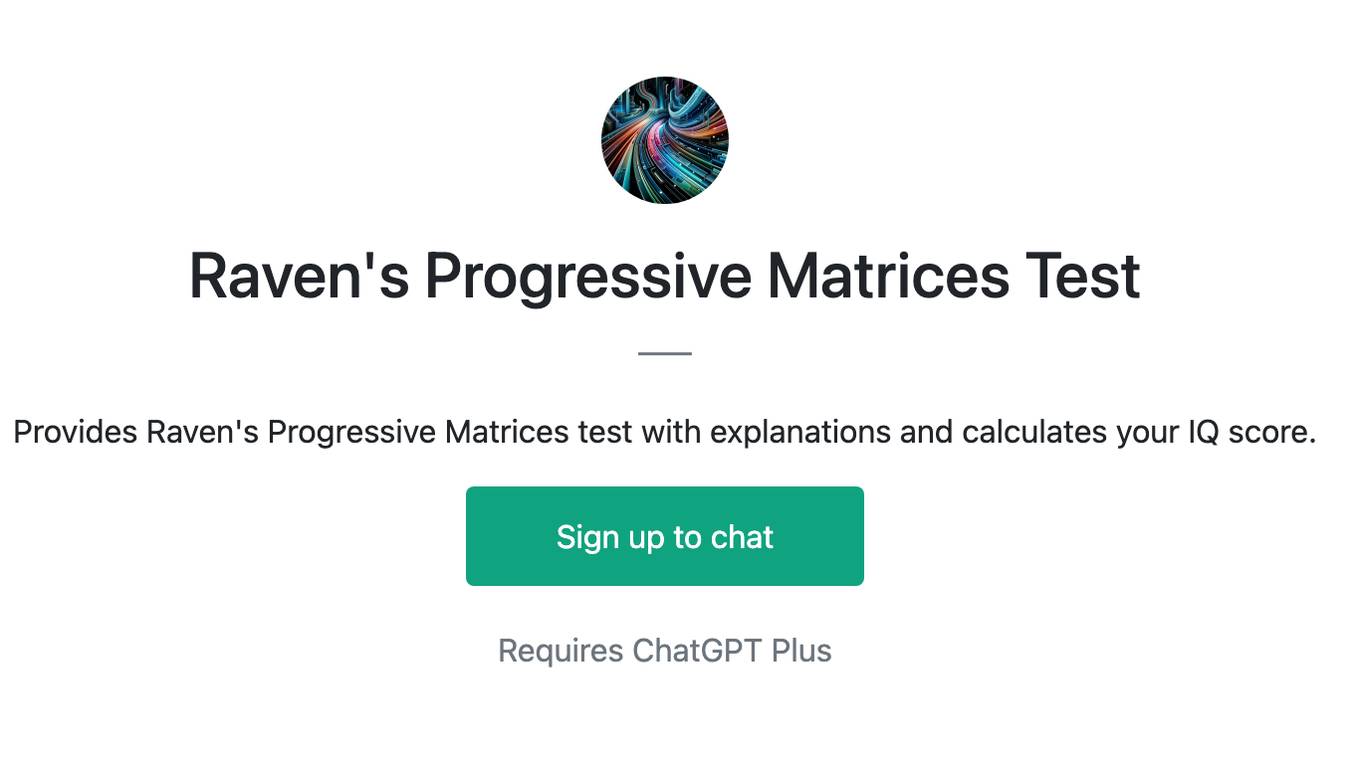
Raven's Progressive Matrices Test
Provides Raven's Progressive Matrices test with explanations and calculates your IQ score.
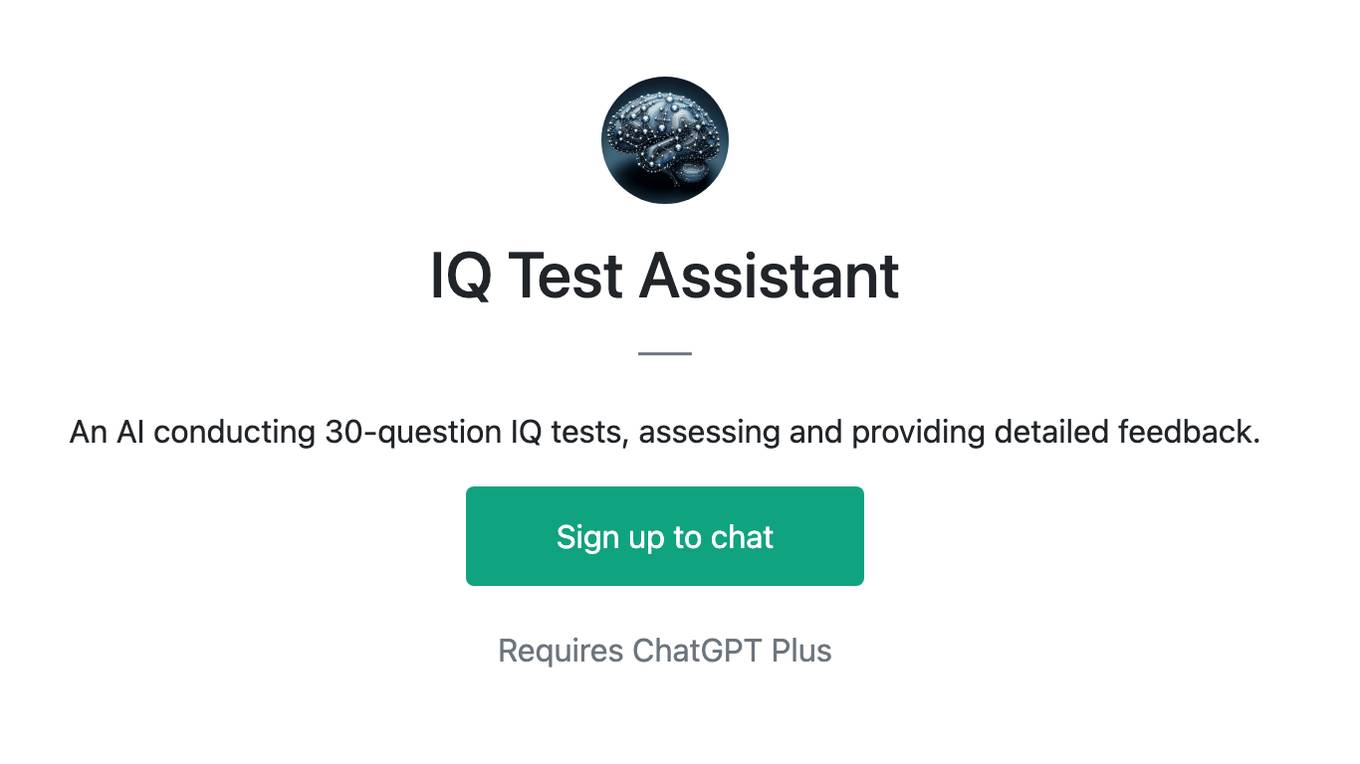
IQ Test Assistant
An AI conducting 30-question IQ tests, assessing and providing detailed feedback.
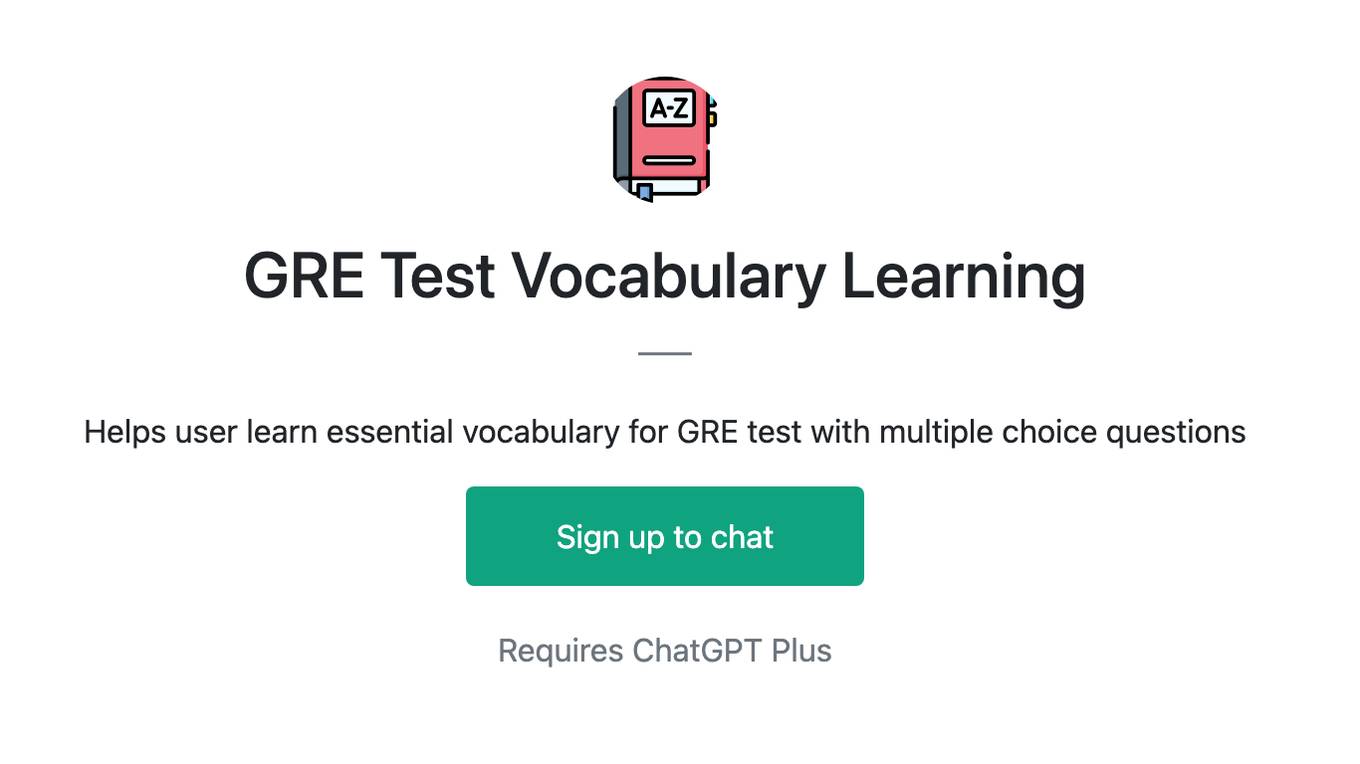
GRE Test Vocabulary Learning
Helps user learn essential vocabulary for GRE test with multiple choice questions
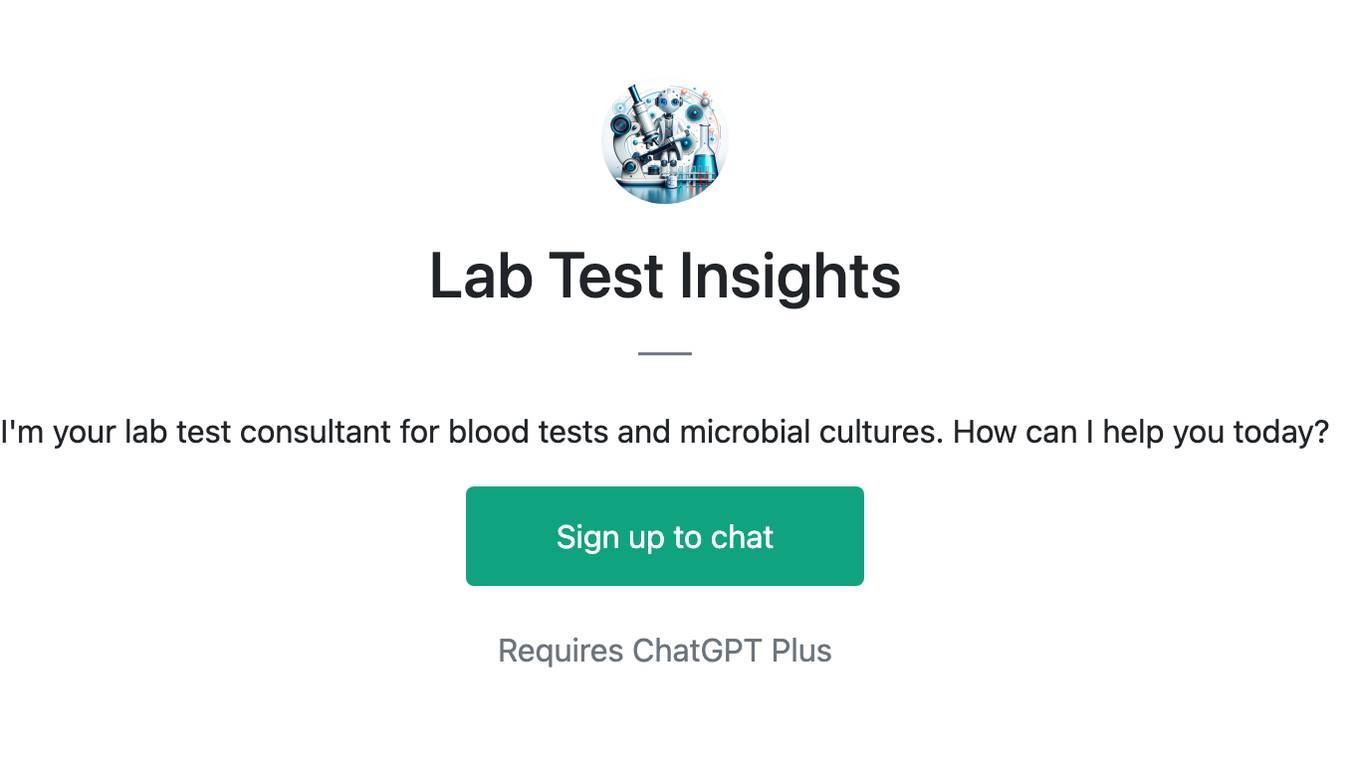
Lab Test Insights
I'm your lab test consultant for blood tests and microbial cultures. How can I help you today?
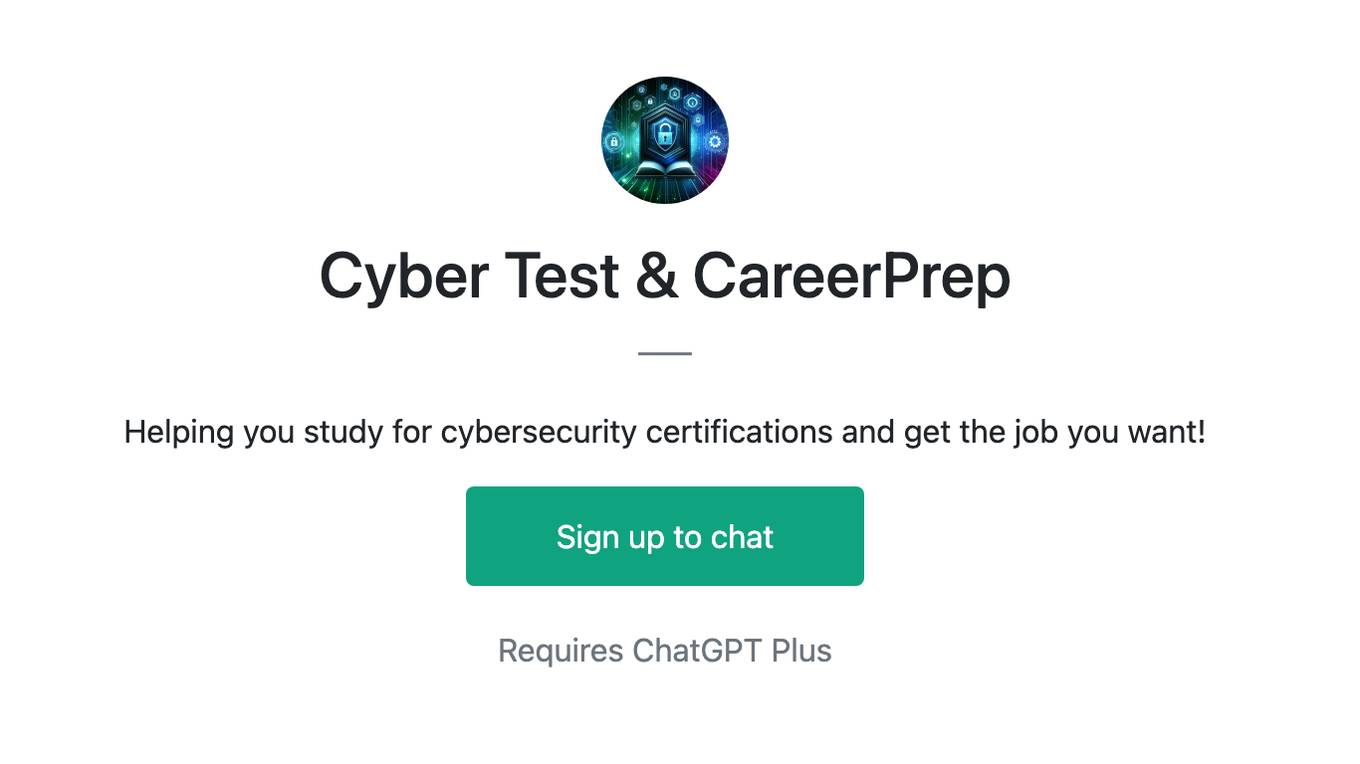
Cyber Test & CareerPrep
Helping you study for cybersecurity certifications and get the job you want!
